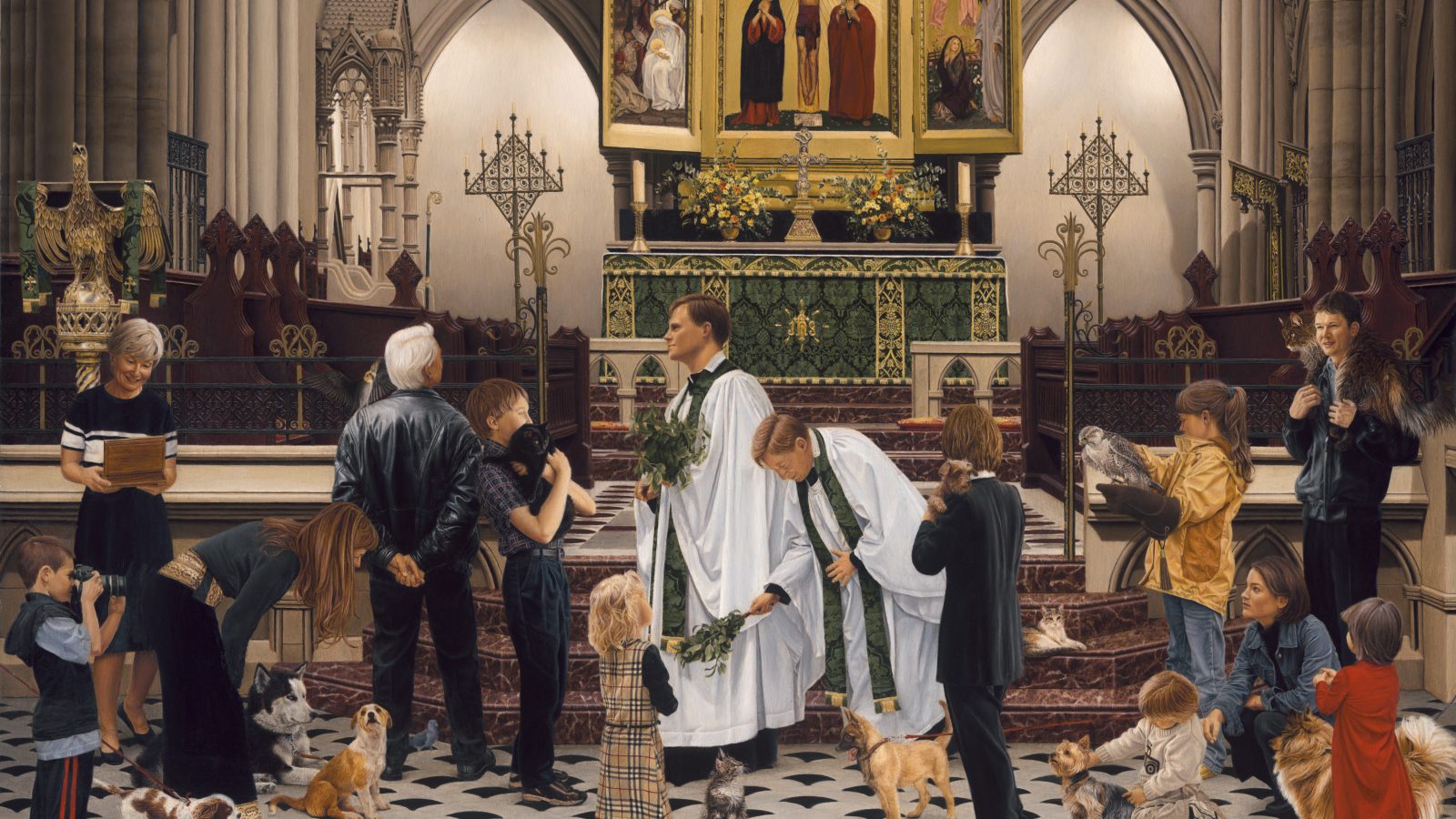It has always been in my mind to pay homage to the presence of animals and spiritual support in my life (not to forget family and friends), as well as to the techniques, composition and extraordinary art left to us by the artists of the past. The seeds were planted in the late nineties for the perfect integration of these major influences when I heard of the Blessing of the Animals service in my spiritual home in Paris, The American Cathedral.
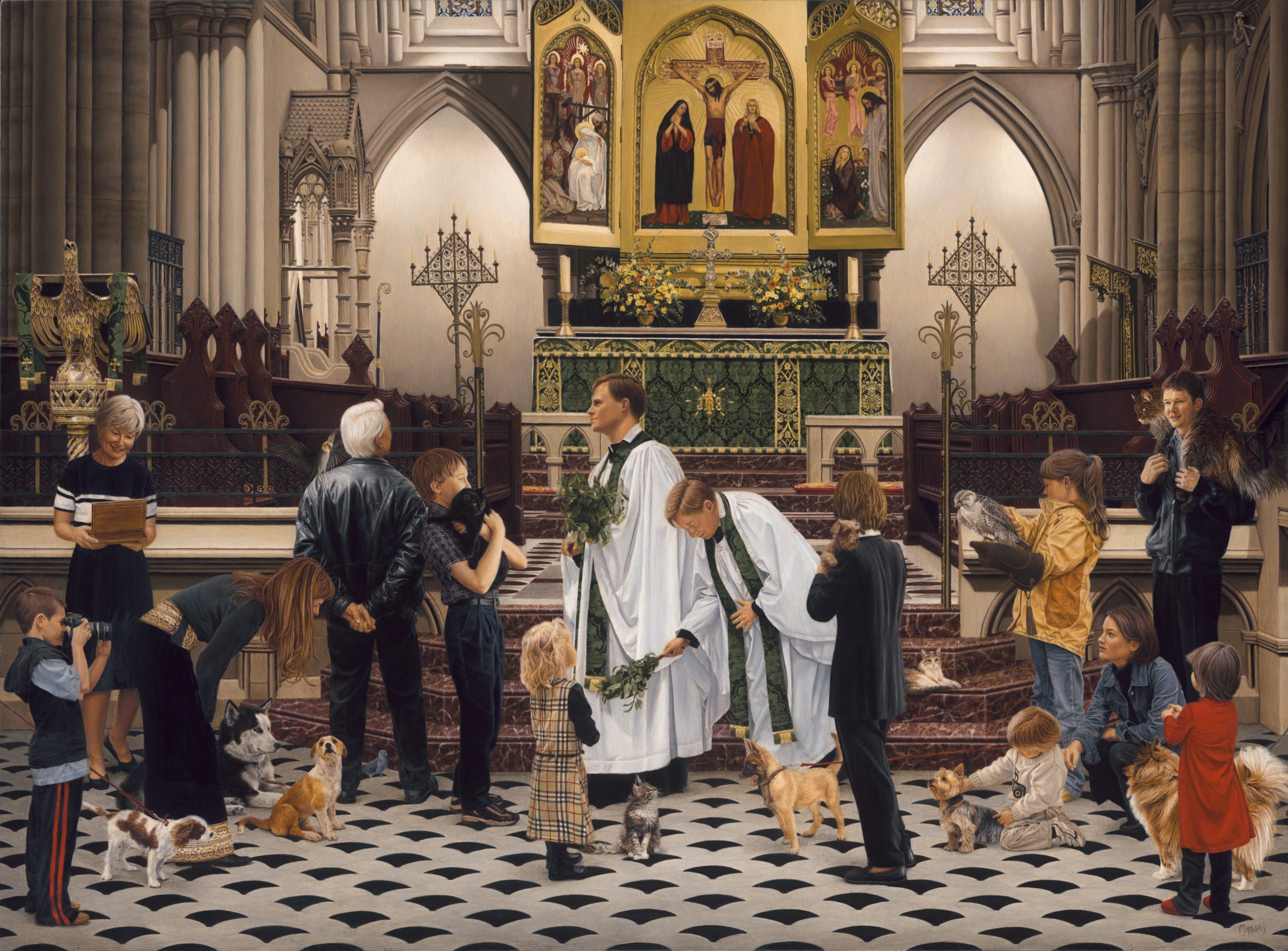
17in x 23in | 43.2cm x 58.4cm
Oil on mahogany board
Hover over the image to zoom in and see the detail or Click to view the full size image in a new tab
This yearly service is held in innumerable churches on or near October 4th to celebrate the feast day of St. Francis of Assisi. As legend has it, this remarkable saint also preached to the birds and is the patron saint of animals. Unlike my portrayal of the event, in order not to tempt their God-given tendencies, animals may attend only with restraints, pet carriers or cages.
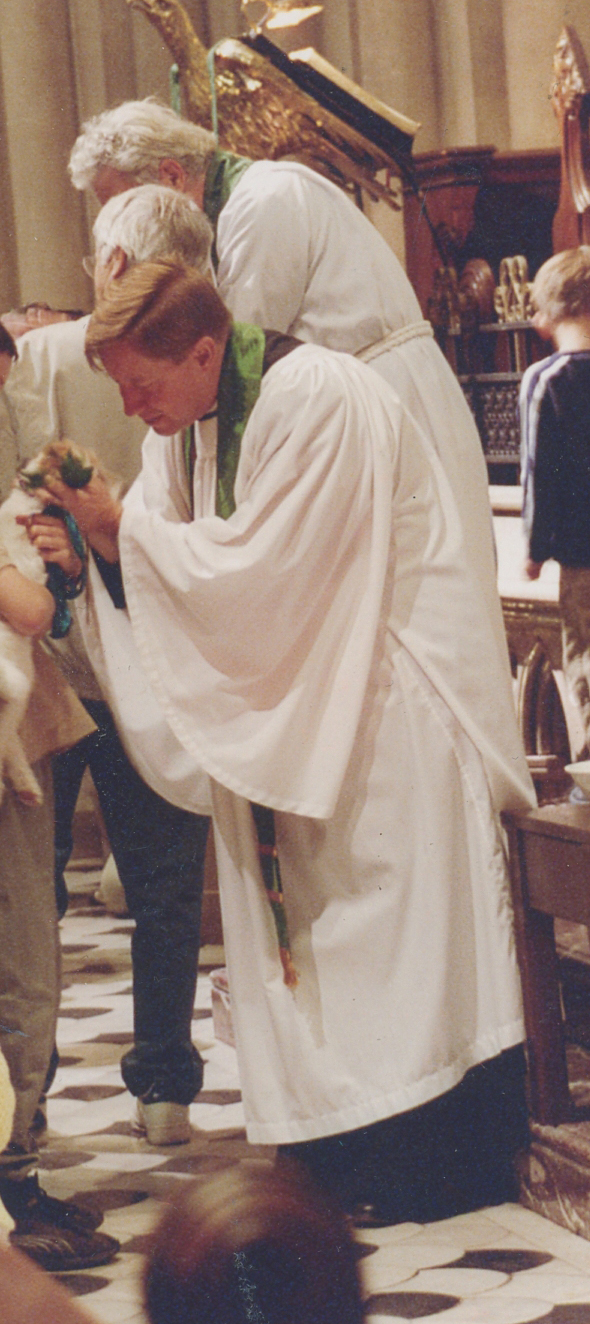
Photo ©2003 Ann James Massey
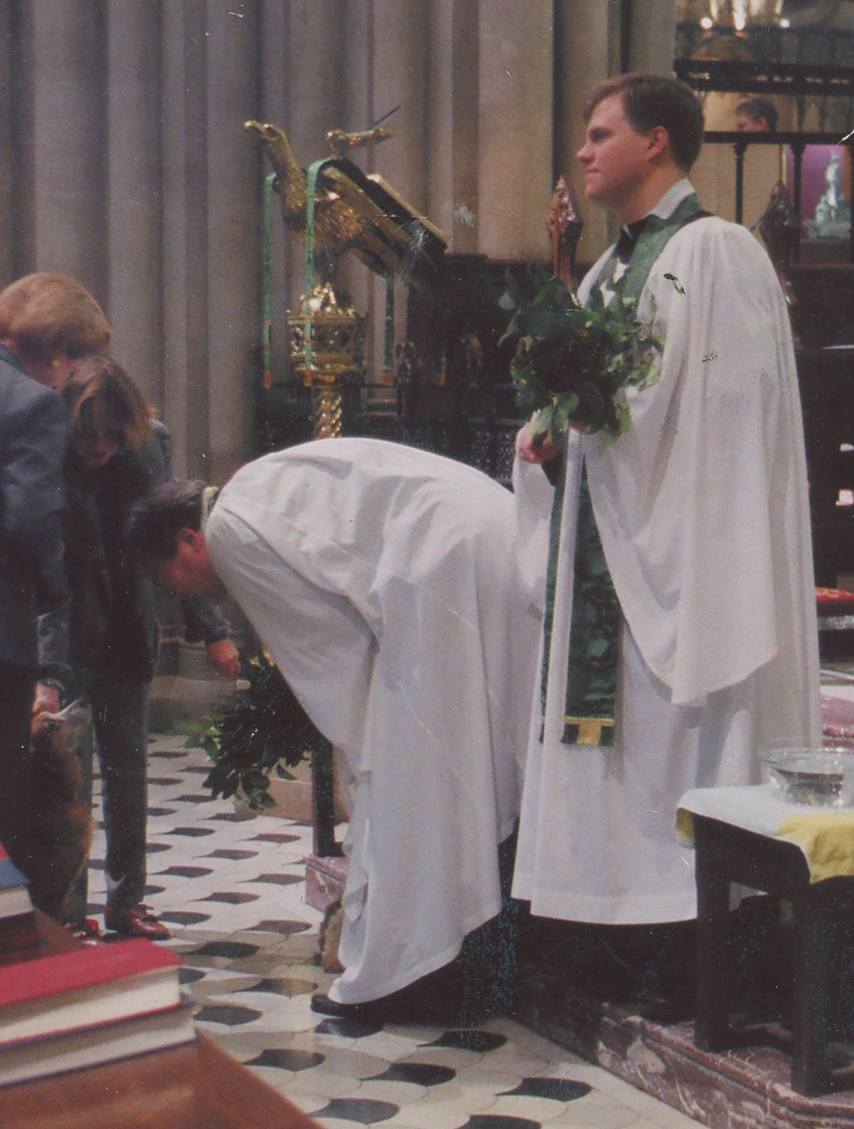
Photo ©2004 Ann James Massey
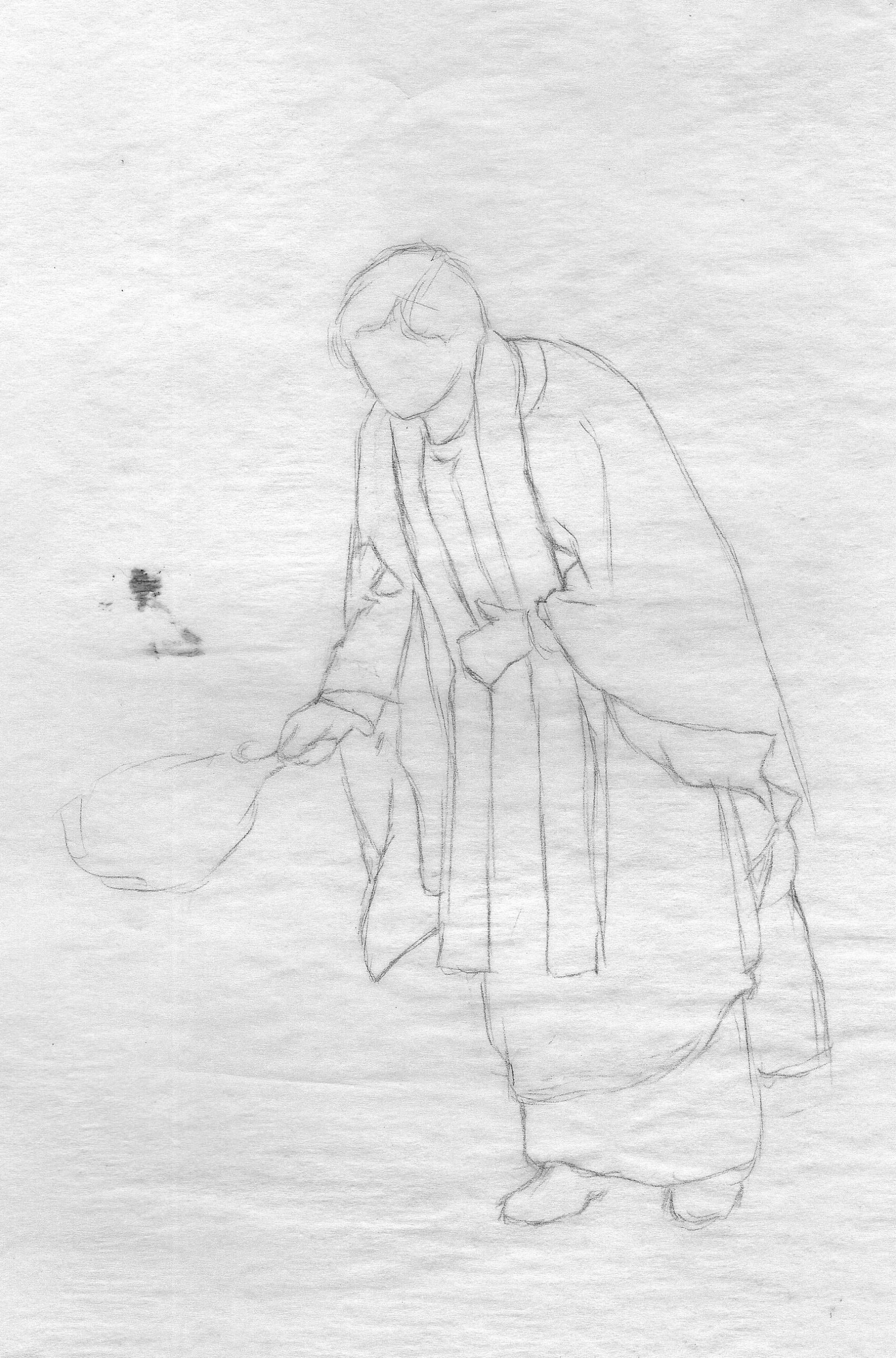
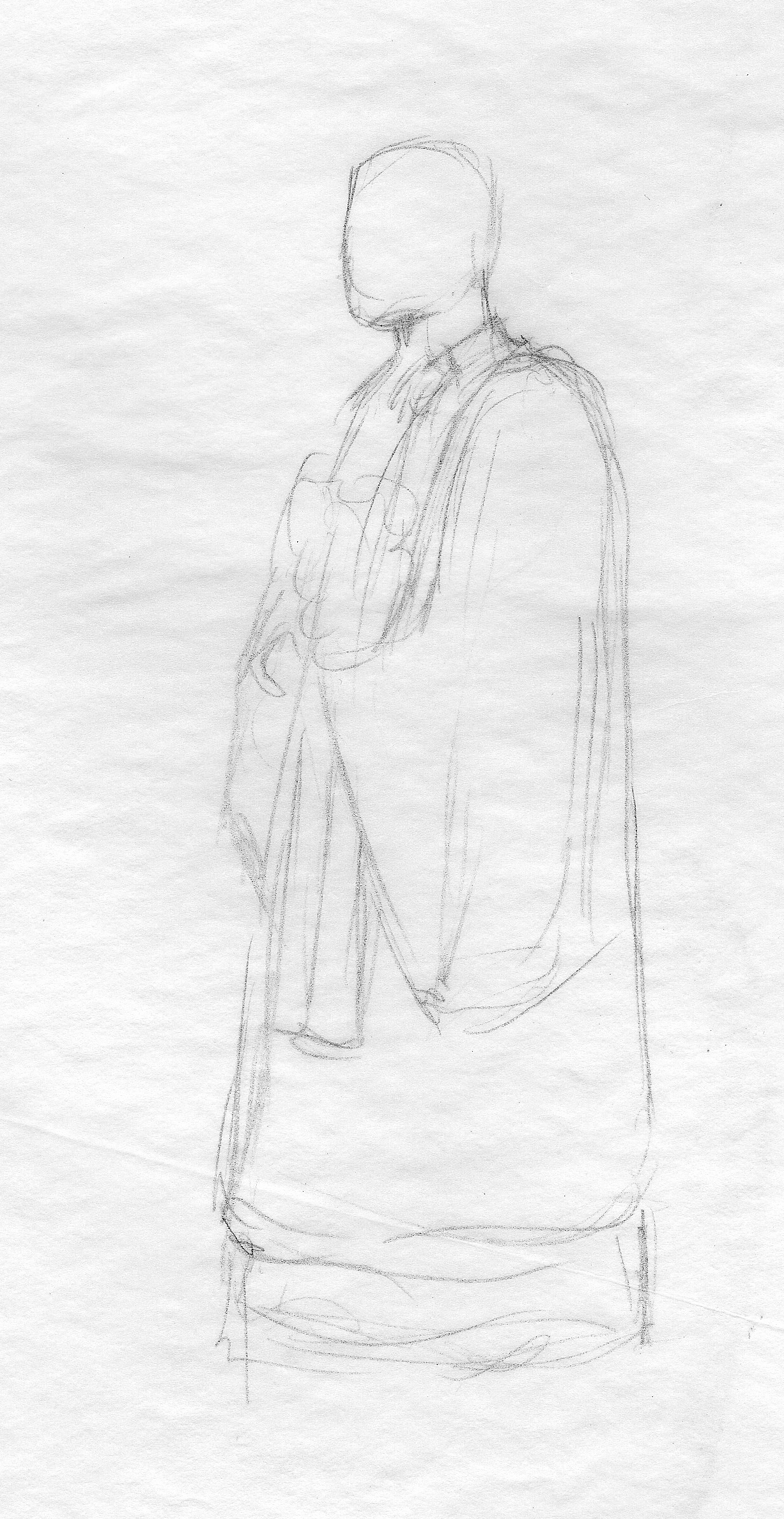
©2009 Ann James Massey
Though the setting is a fair rendition of the American Cathedral, my painting was never meant to be an exact portrait. Though I have kept the multiple lighting sources as is present in the Cathedral, like the artists of the past I’ve simplified, changed, and deleted some minor elements as well as altered perspective and scale quite a lot for compositional consideration to make the image more pleasing to the viewer’s eye. Moreover, this painting is not a reproduction of any Blessing I have seen, even though a few people and animals from actual ceremonies have been incorporated.
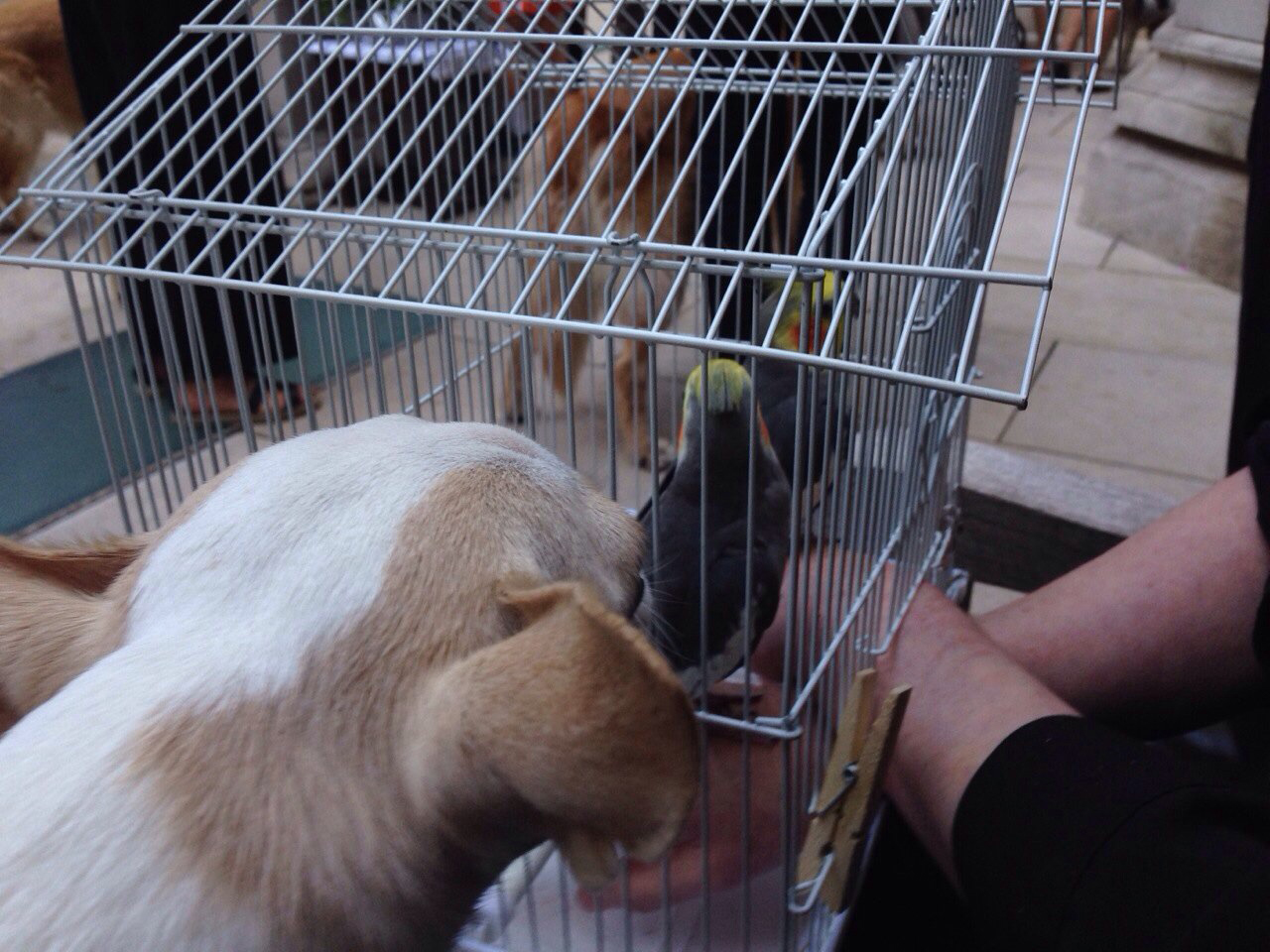
Note both Ann’s hands are in the cage so each bird has a hand to rest on to keep them calm since they are unused to being caged.
Photo © 2014 Milena Achkar
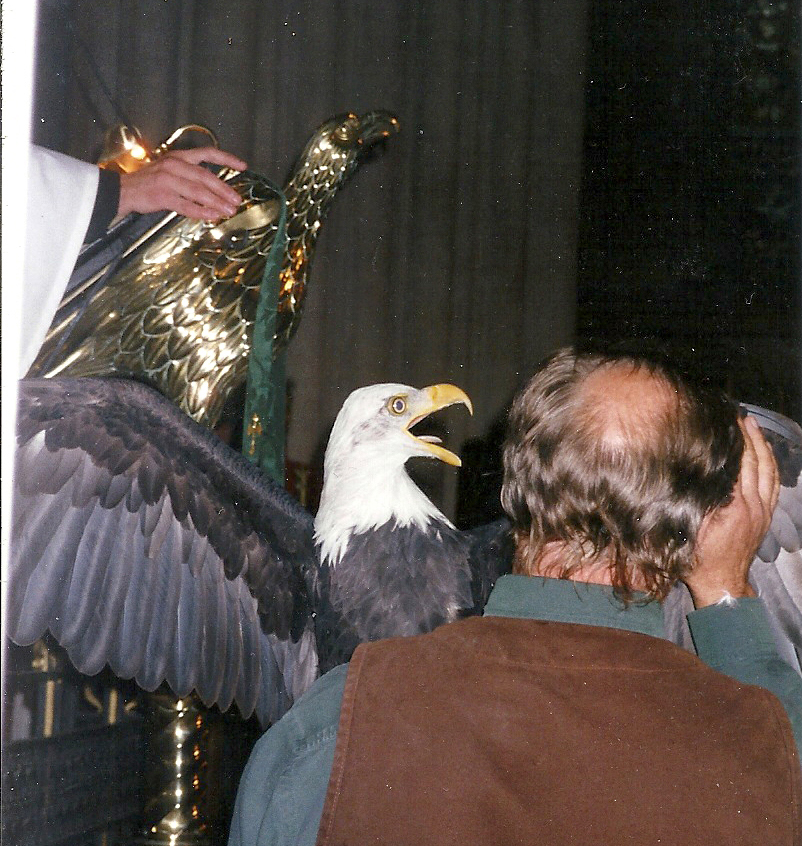
Photo © Harriet Rivière
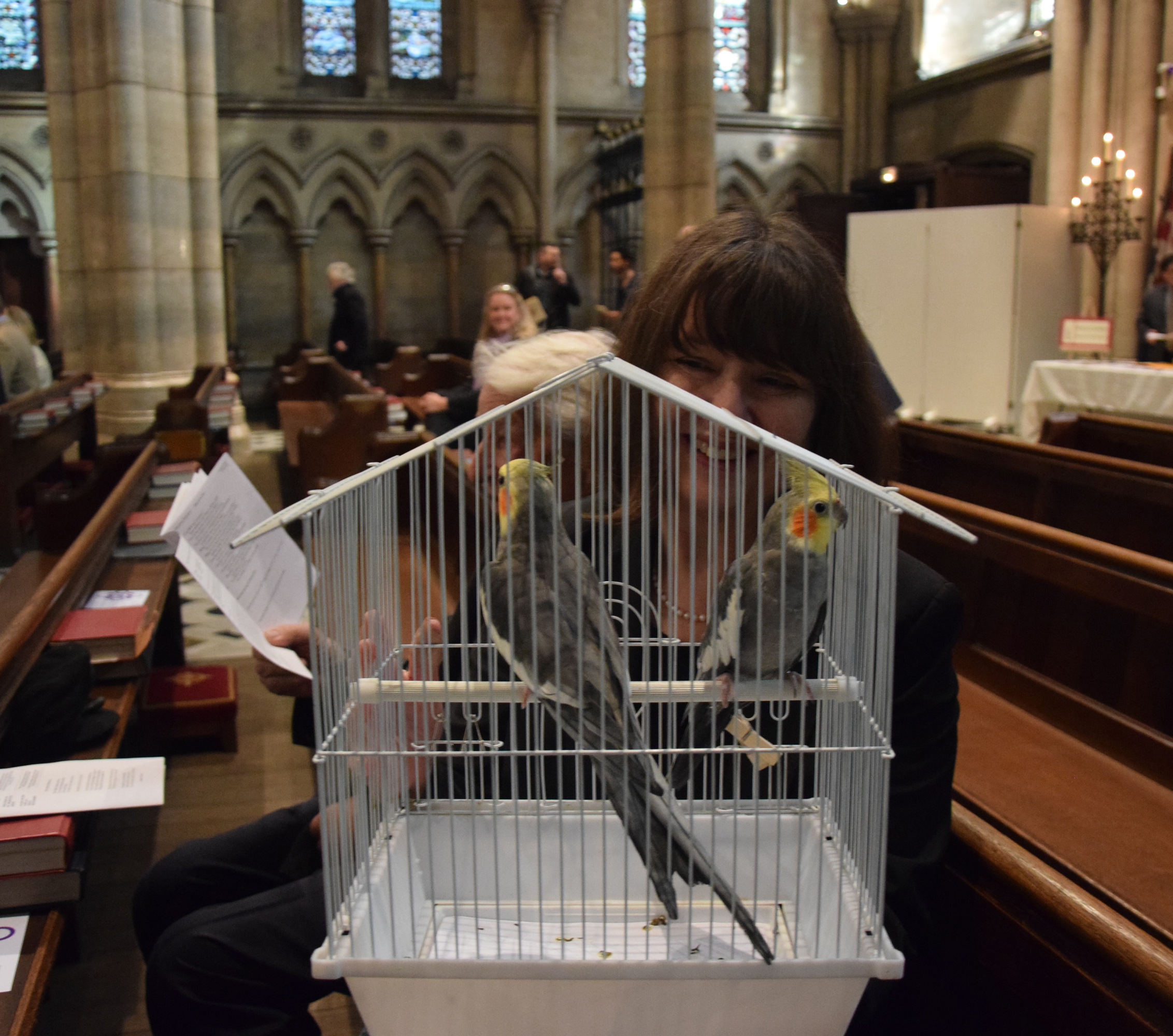
The image has been entirely created by hand with no mechanical means. It took me a year to decide on all the participants, do the sketches, create the composition and finalize the original line drawing. Since I was not drawing the image from a photograph, I had to draw the entire church background including working out the perspective for the tiles in order to place the figures realistically in the setting. The final detailed line image was drawn on vellum paper and retraced on the back; then it was taped to the painting support (prepared mahogany board) and rubbed with a blunt instrument to transfer the drawing to the board, then redrawn again on the blurred lines, followed by lifting the excess carbon with a kneaded eraser.
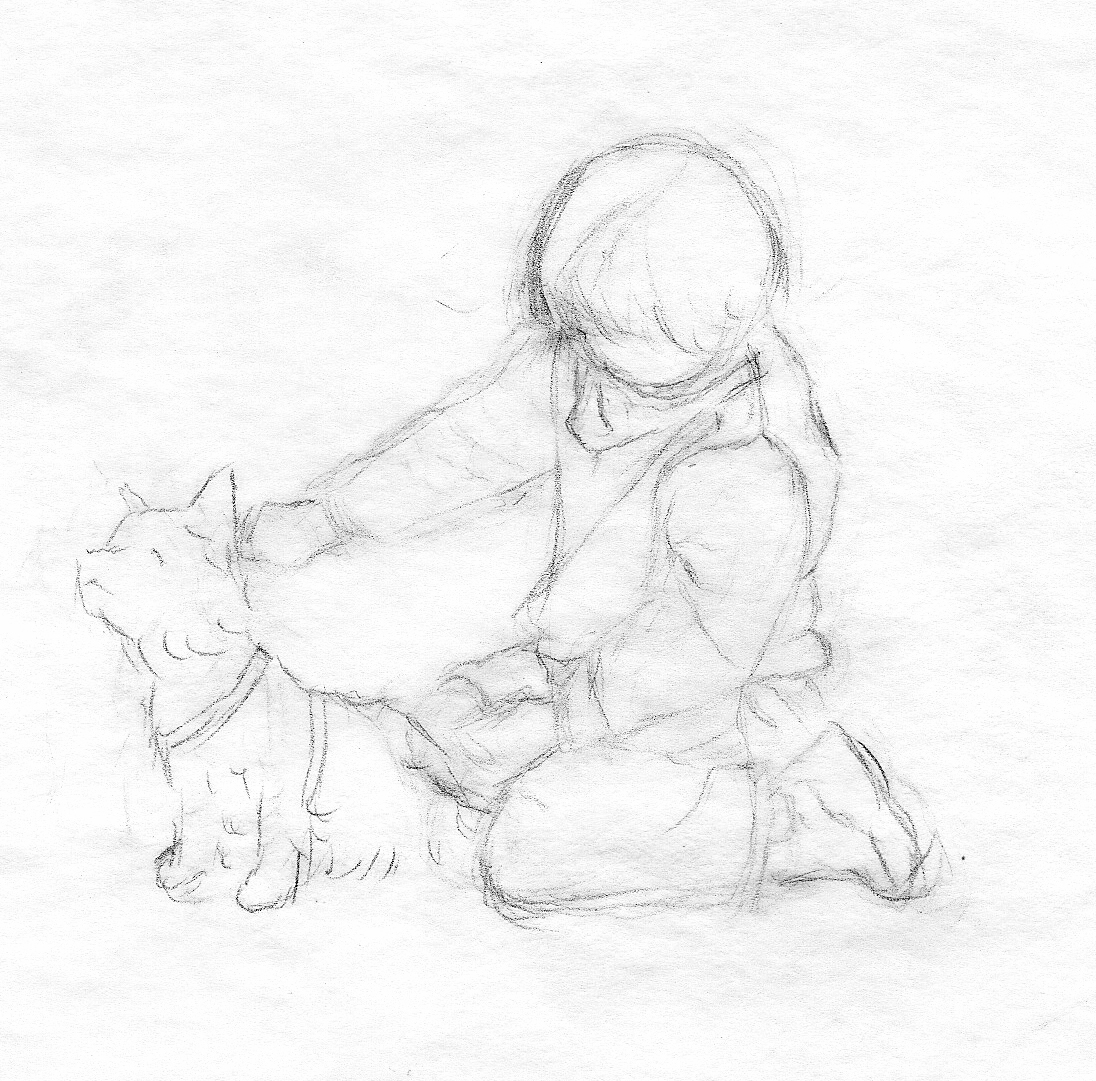
©2009 Ann James Massey
Collection of Linda Larbi-Cherif
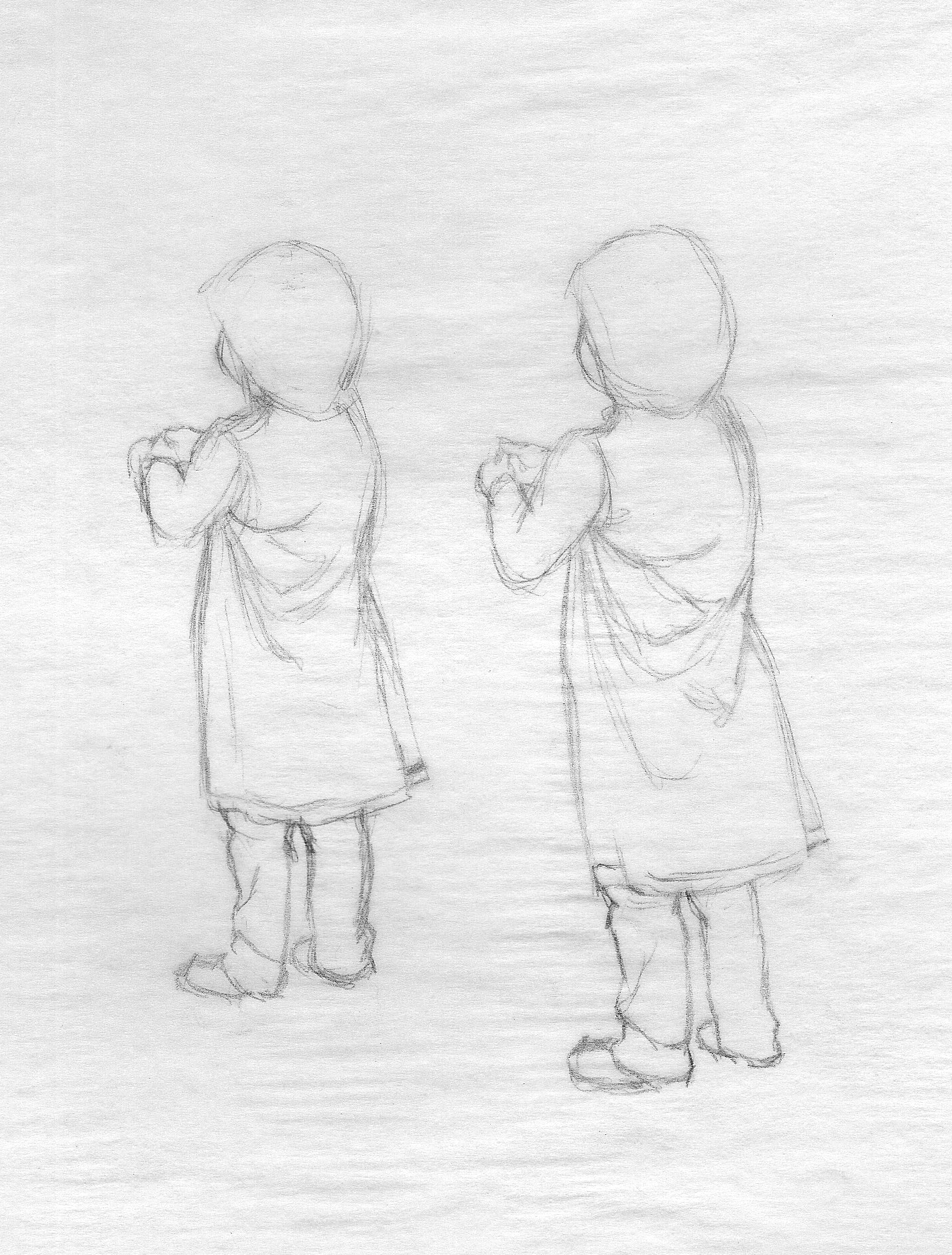
©2009 Ann James Massey
Estate of Juan Sandoval
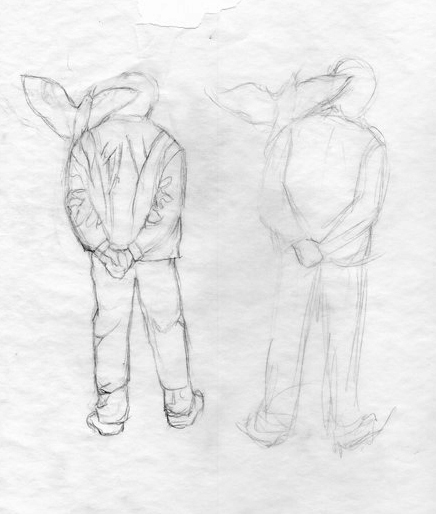
©2009 Ann James Massey
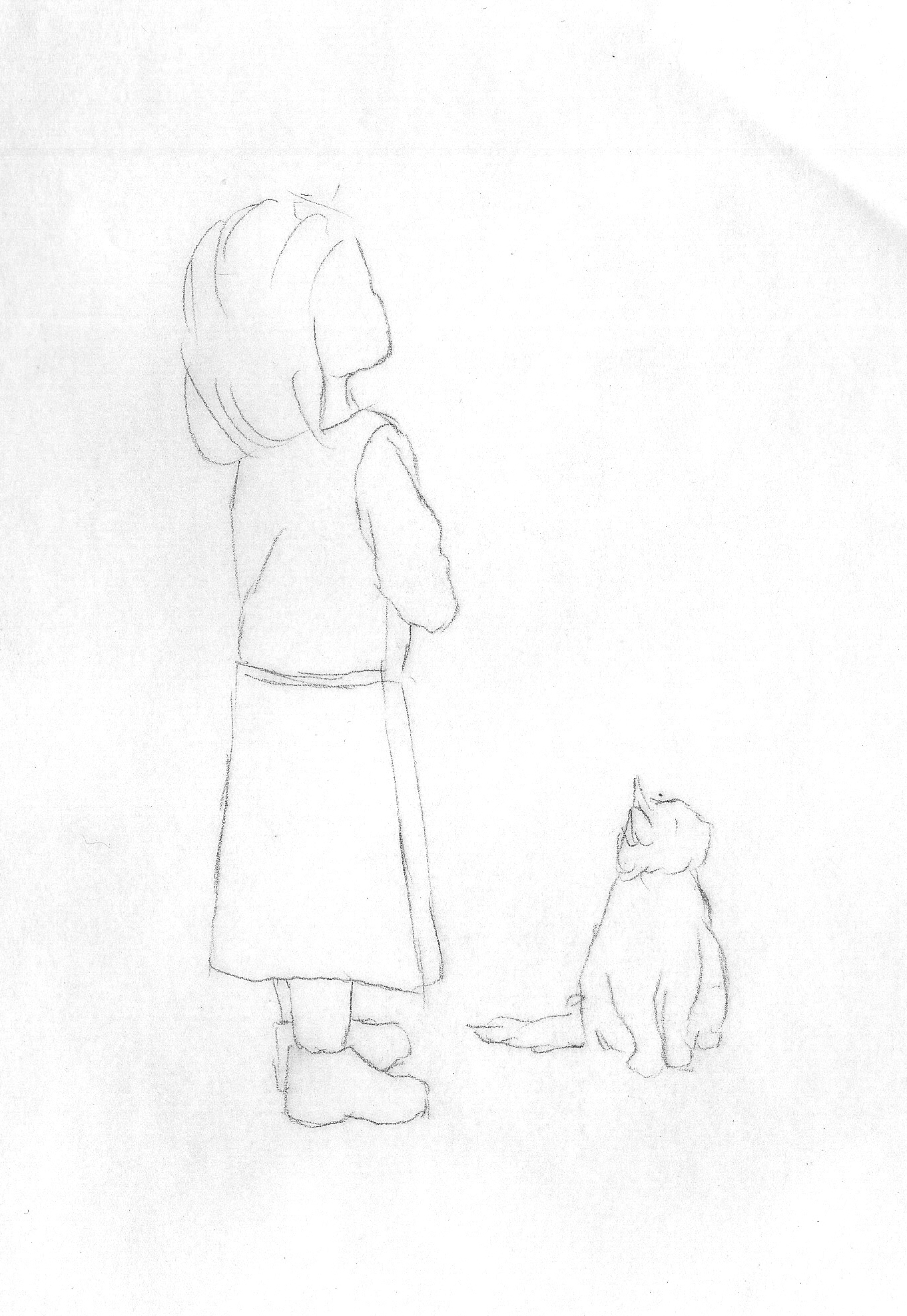
©2009 Ann James Massey
Collection of Linda Larbi-Cherif
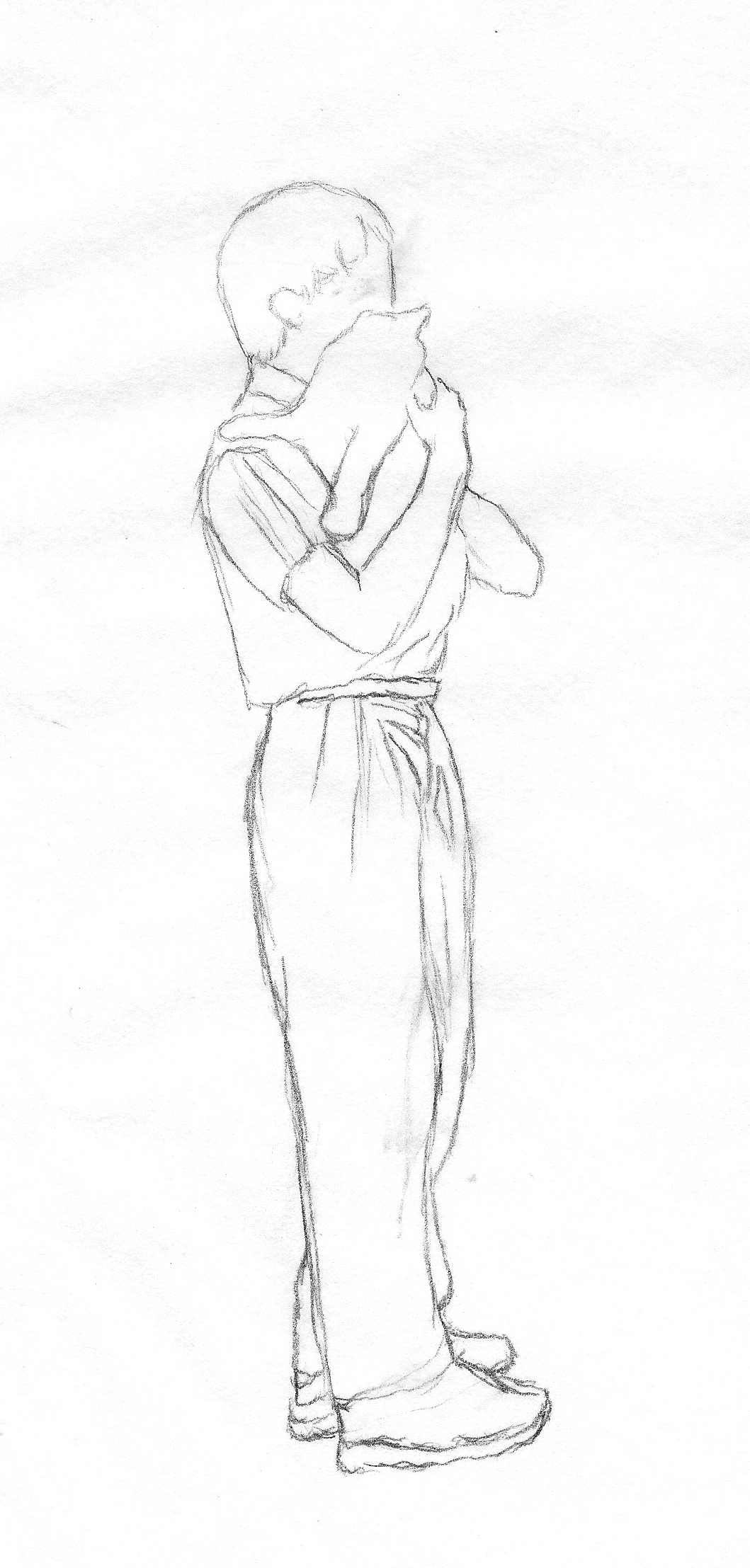
©2009 Ann James Massey
Collection of Derek James
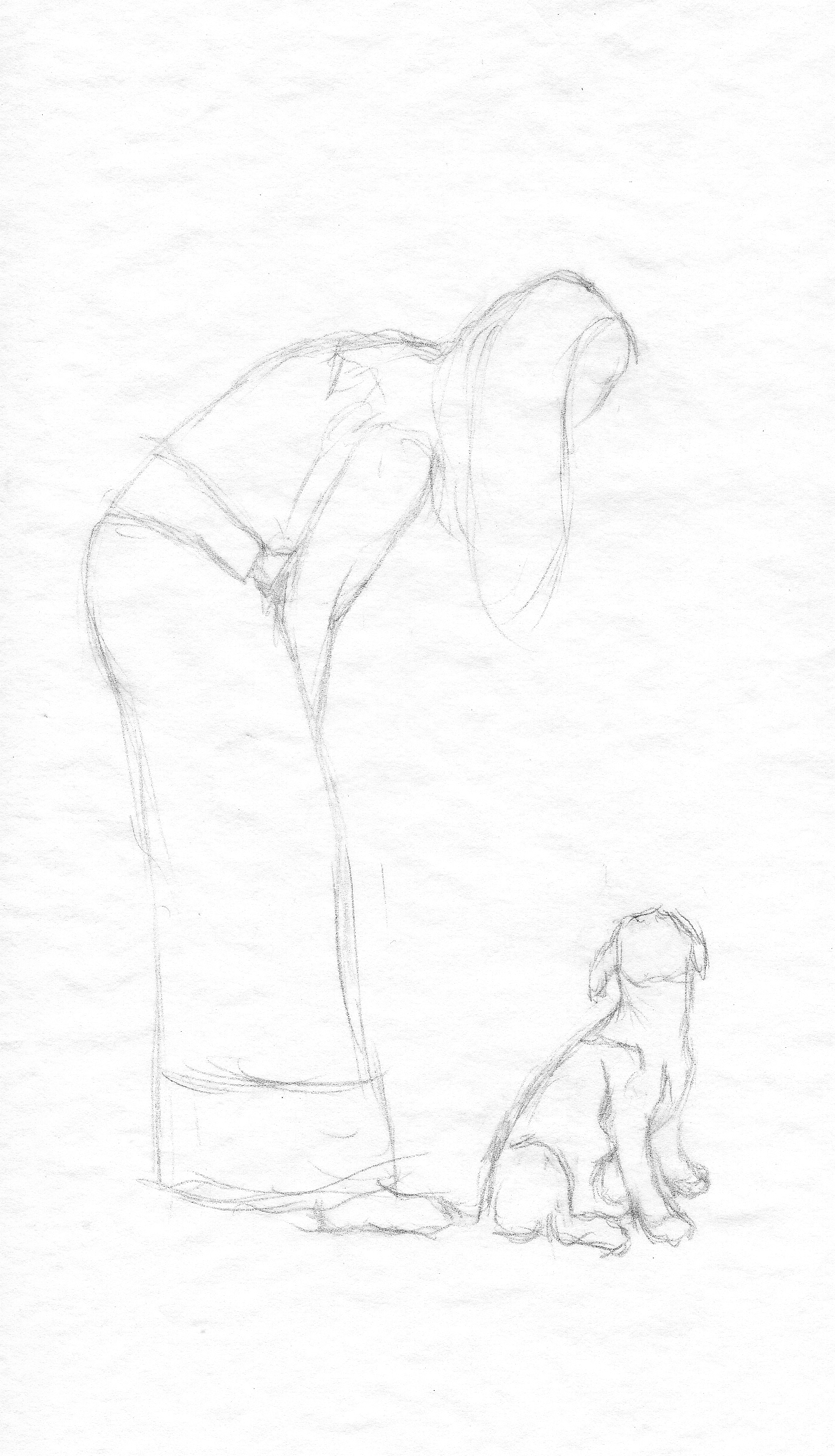
©2009 Ann James Massey
Collection of Karen Oliver
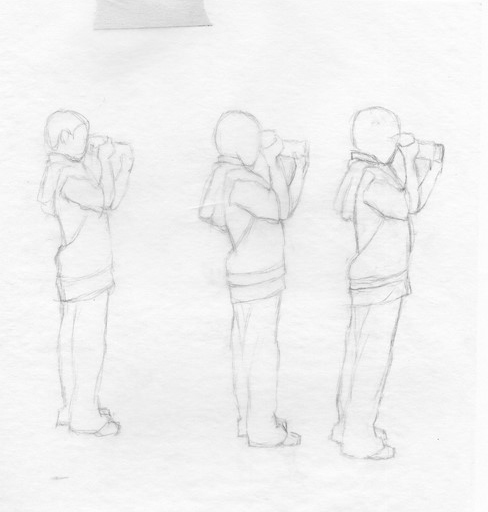
Collection of Marshall Ordish
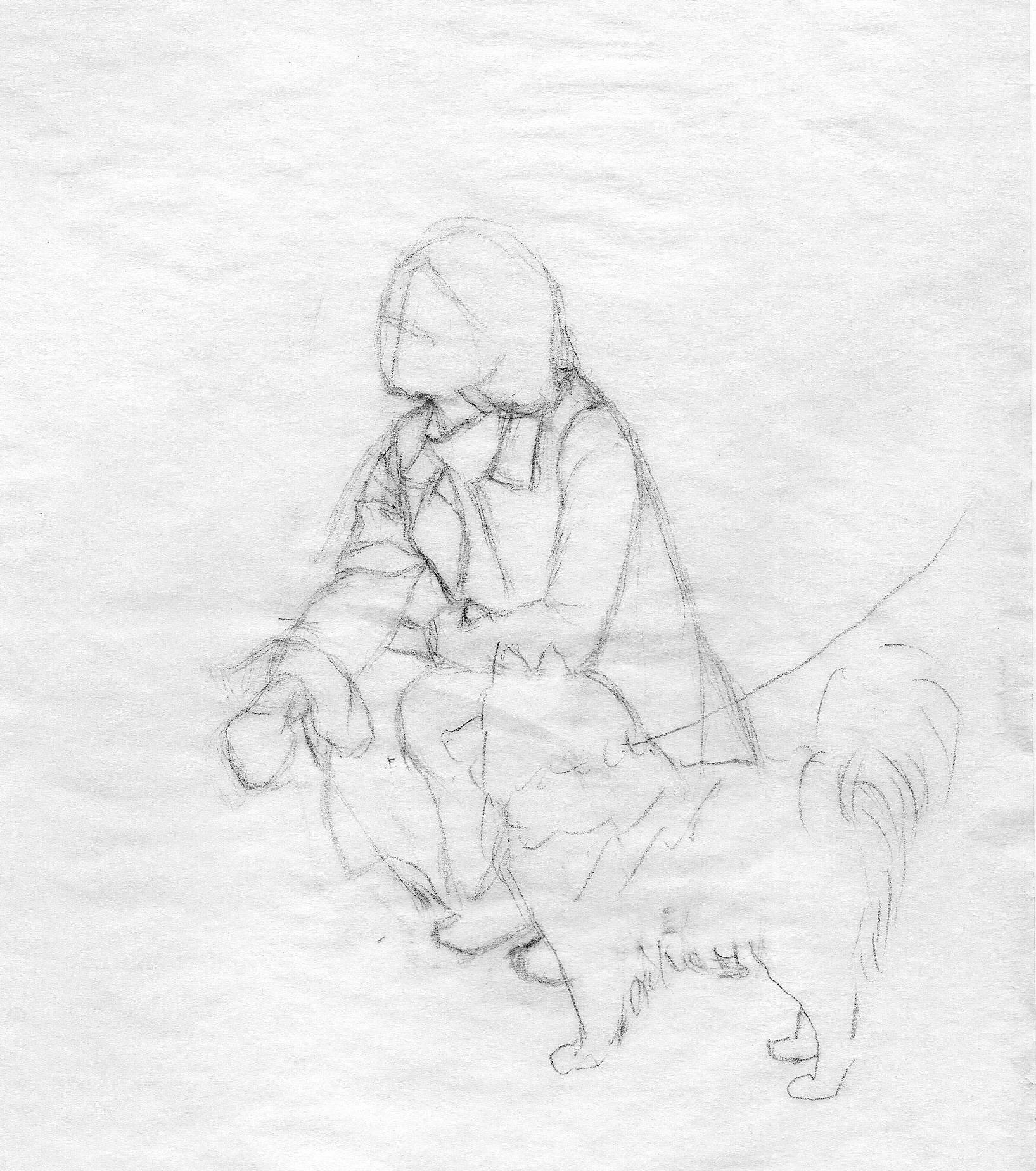
©2009 Ann James Massey
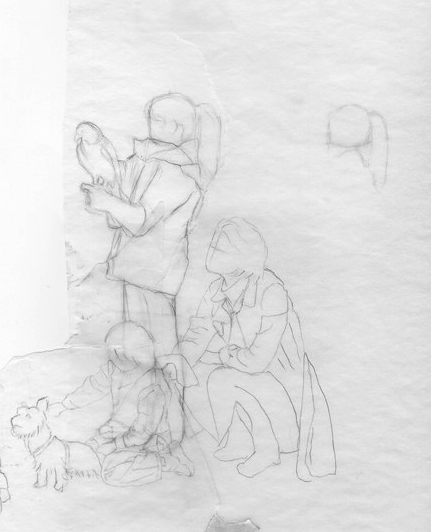
Collection of Dale Kaufman Moore
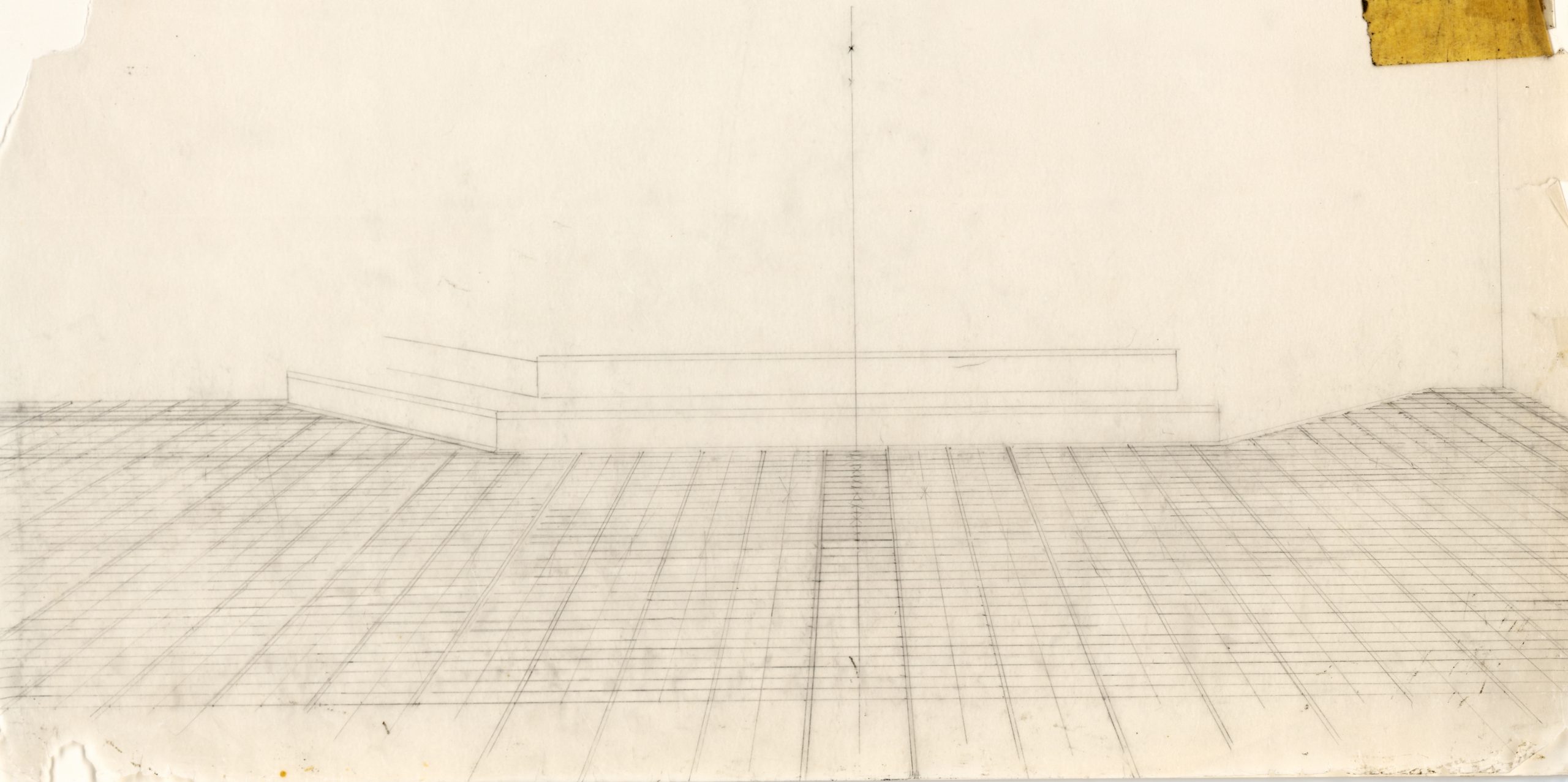
©2009 Ann James Massey
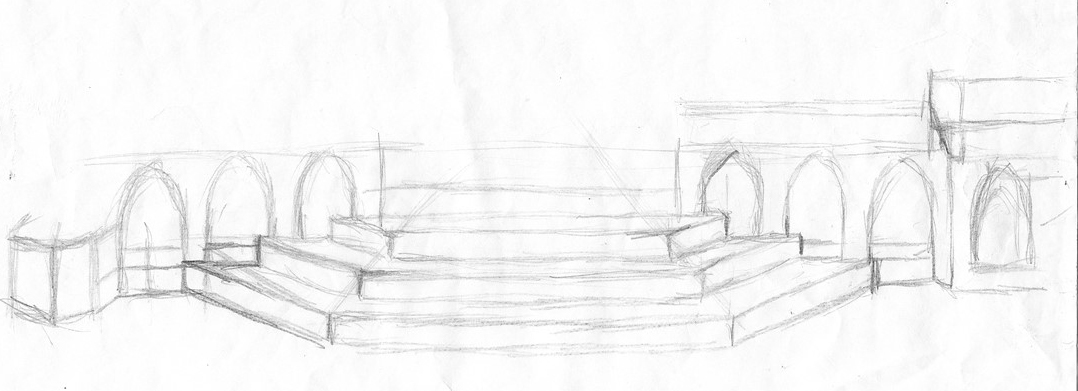
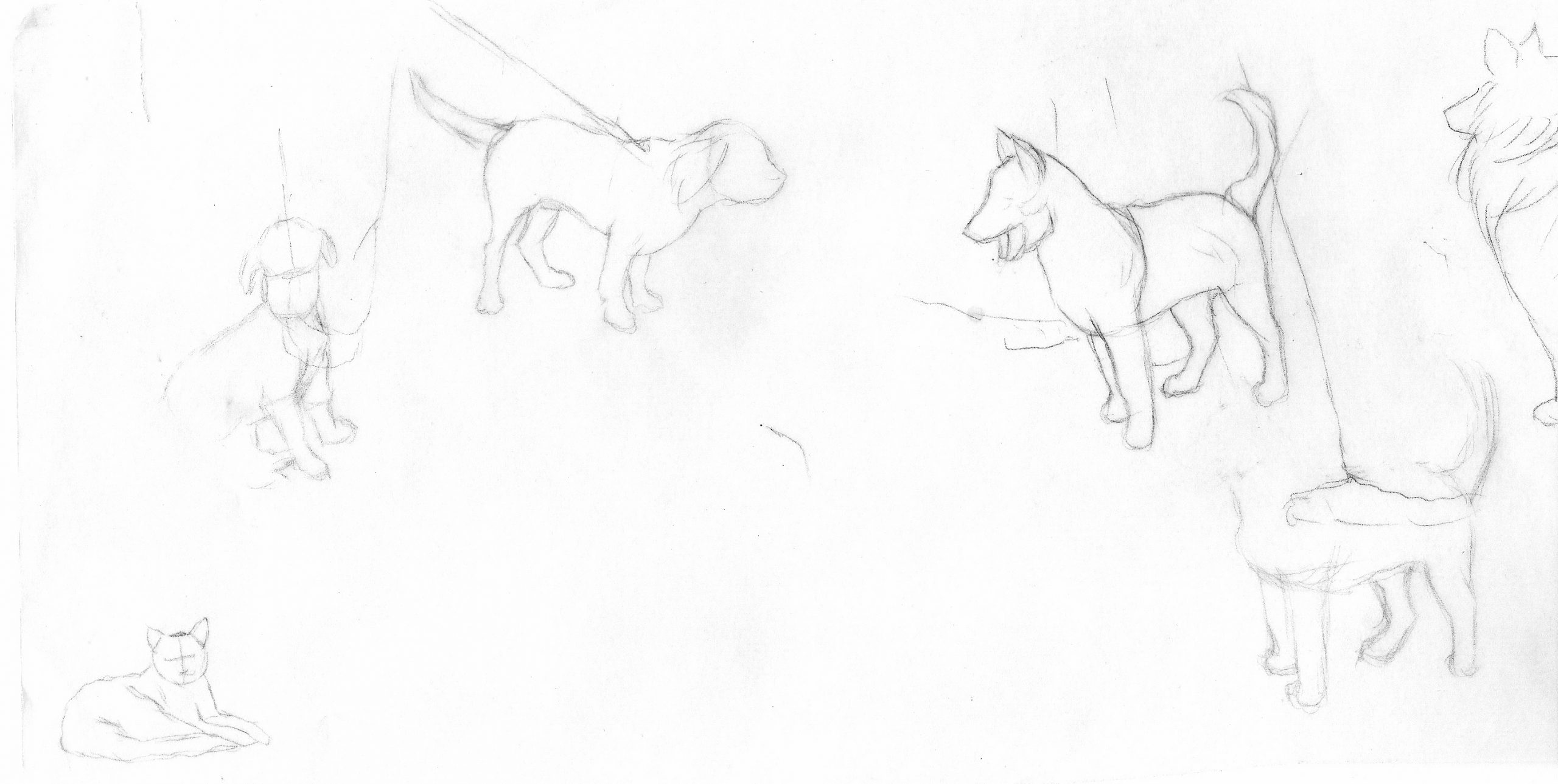
©2009 Ann James Massey
Collection of Paula Denton
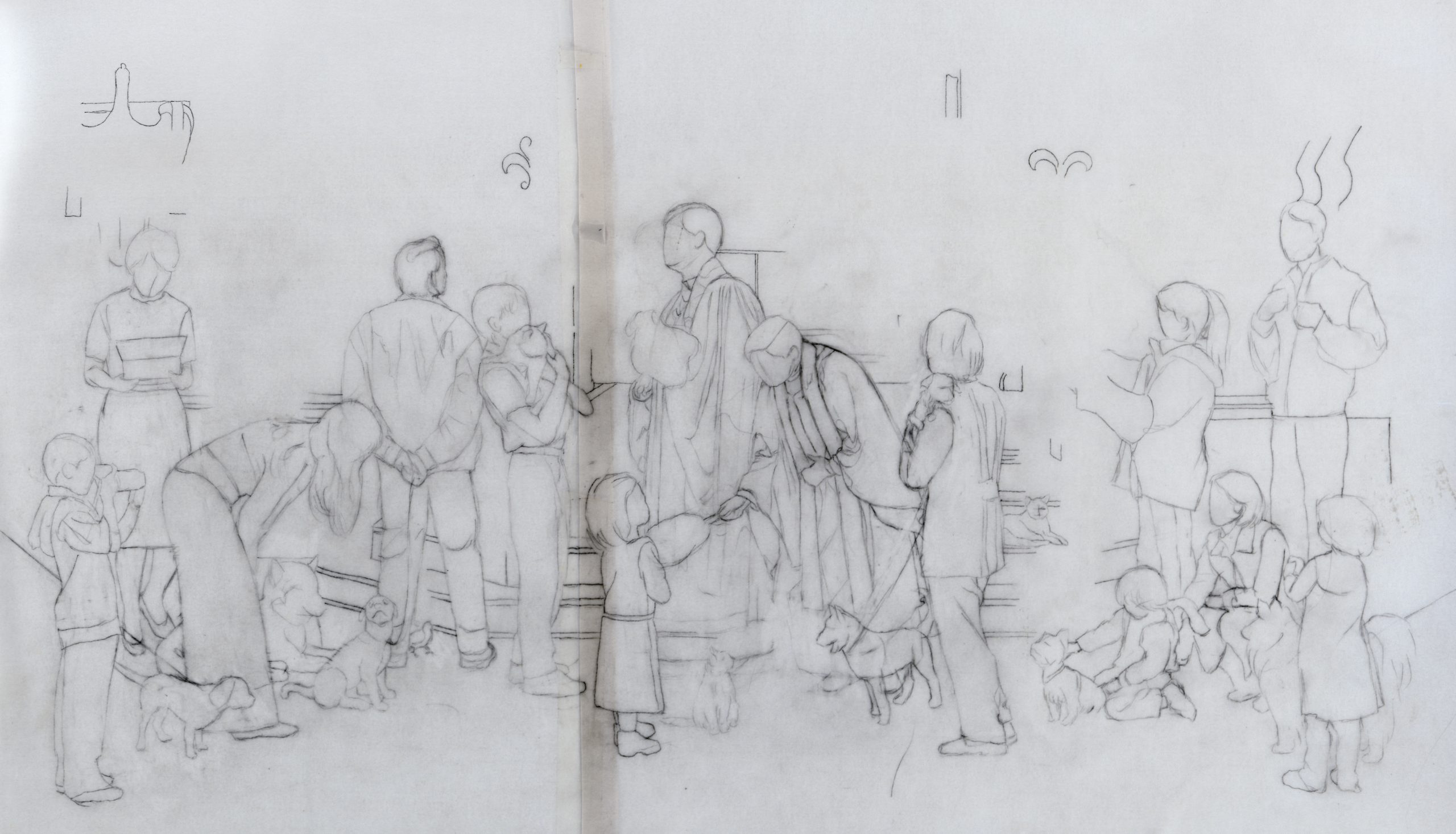
©2009 Ann James Massey
Note below that the central vanishing point located at the IHS symbol in the frontal piece is not in the center of the painting but is to the right, creating a far more interesting slightly asymmetrical design.
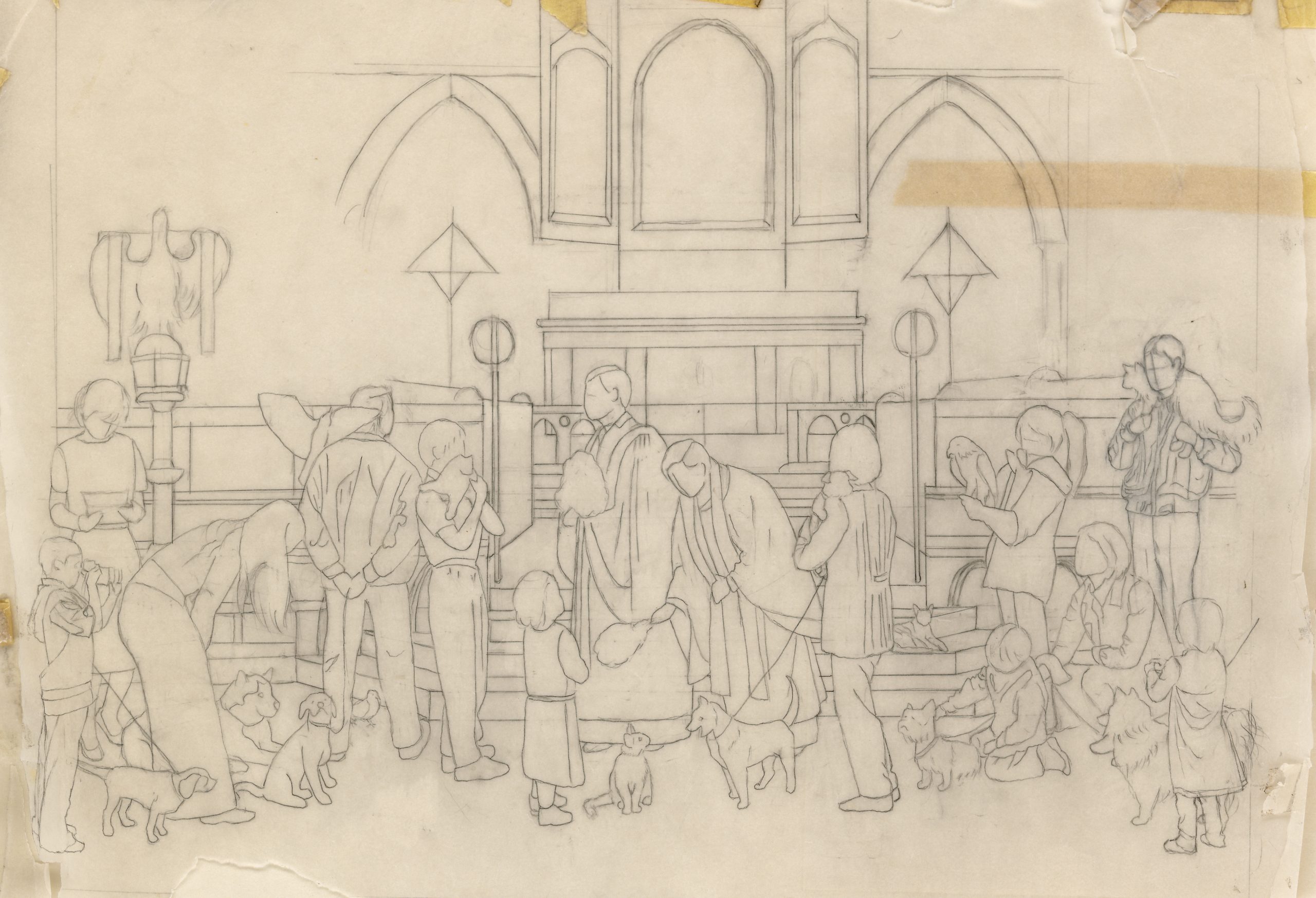
©2010 Ann James Massey
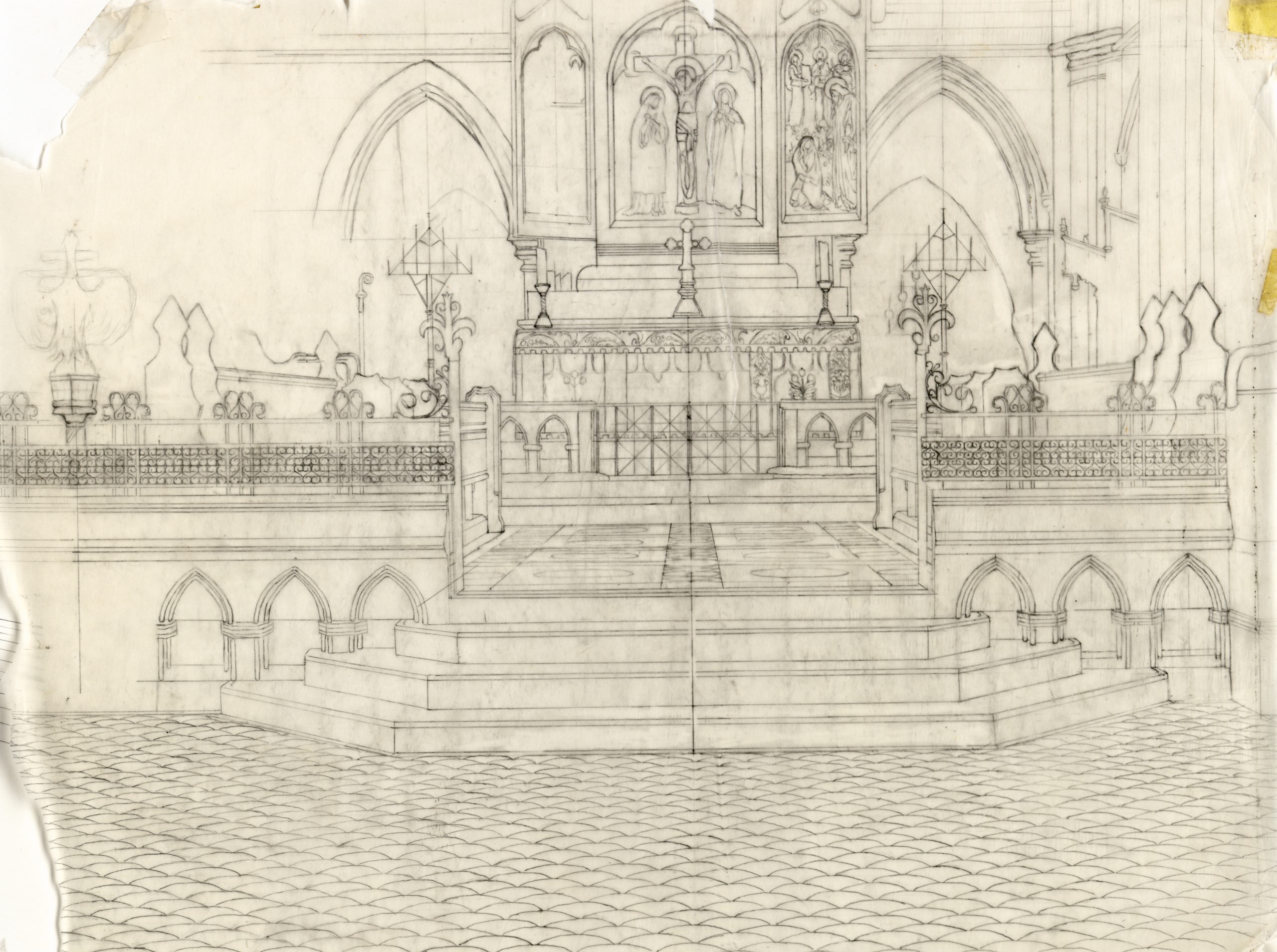
©2010 Ann James Massey
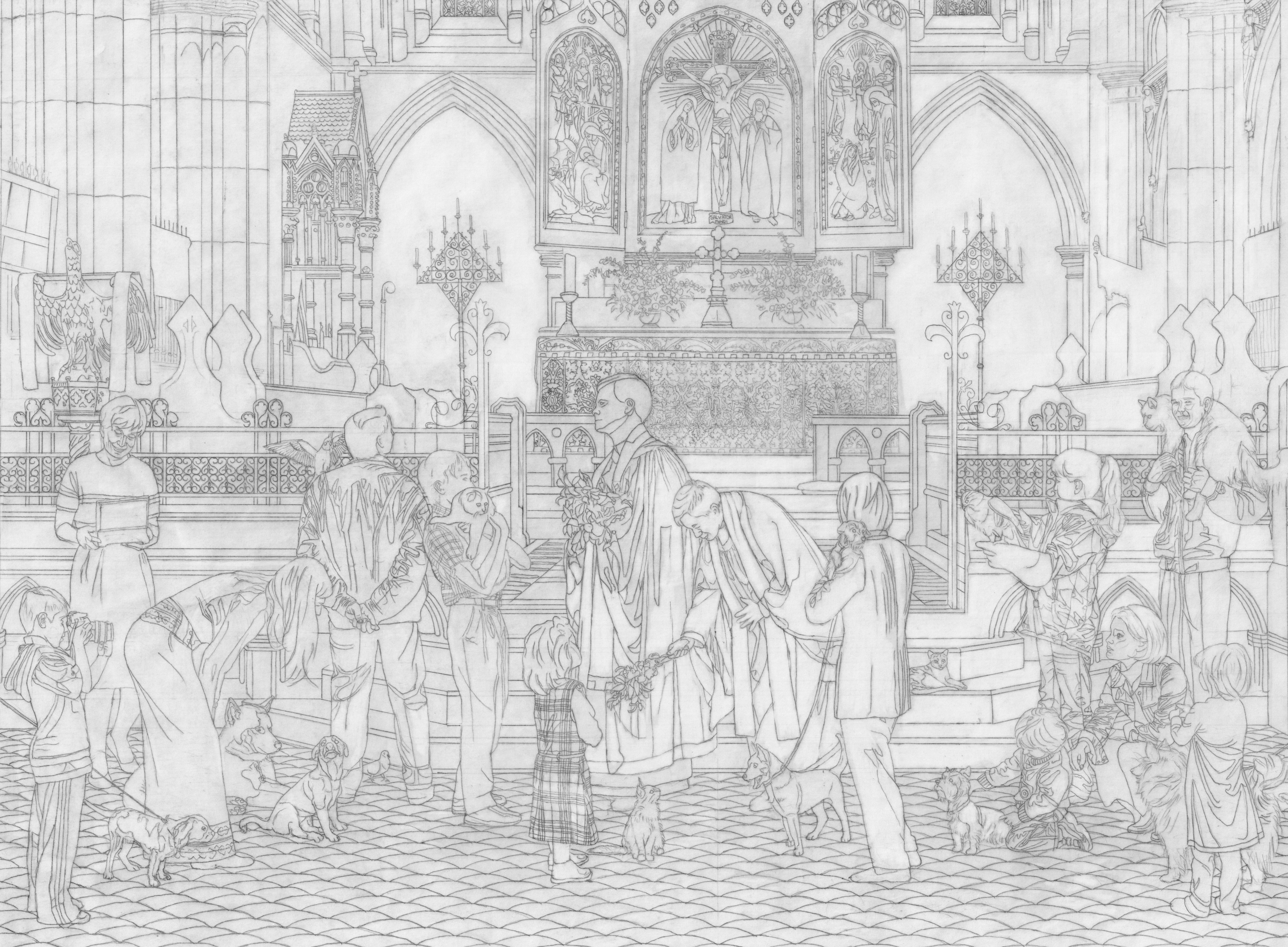
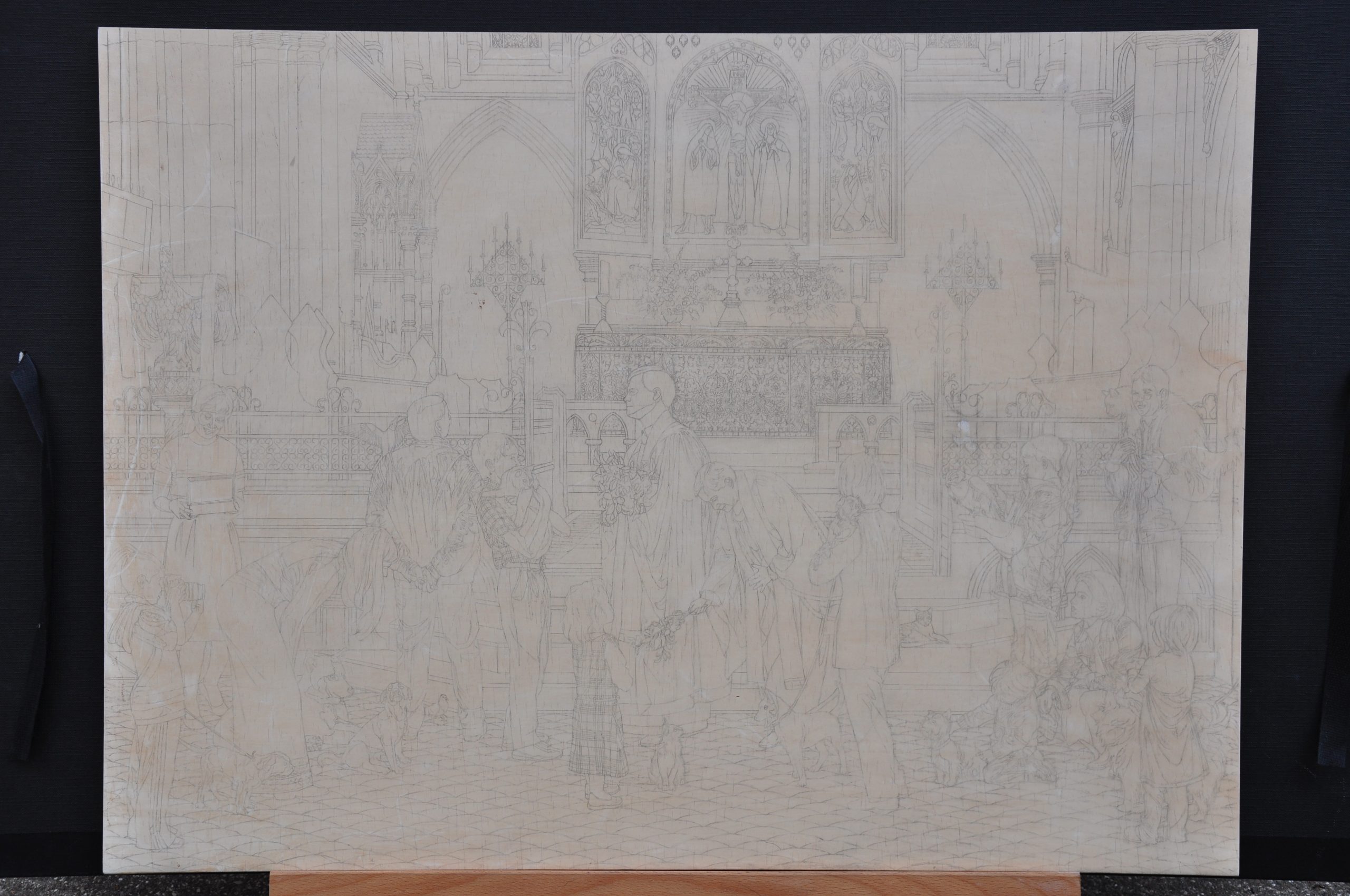
Drawn from over 26 years of my original source material (comprising hundreds of photos and onsite sketches), a list of all the characters who did become part of the painting can be found below under Subjects.
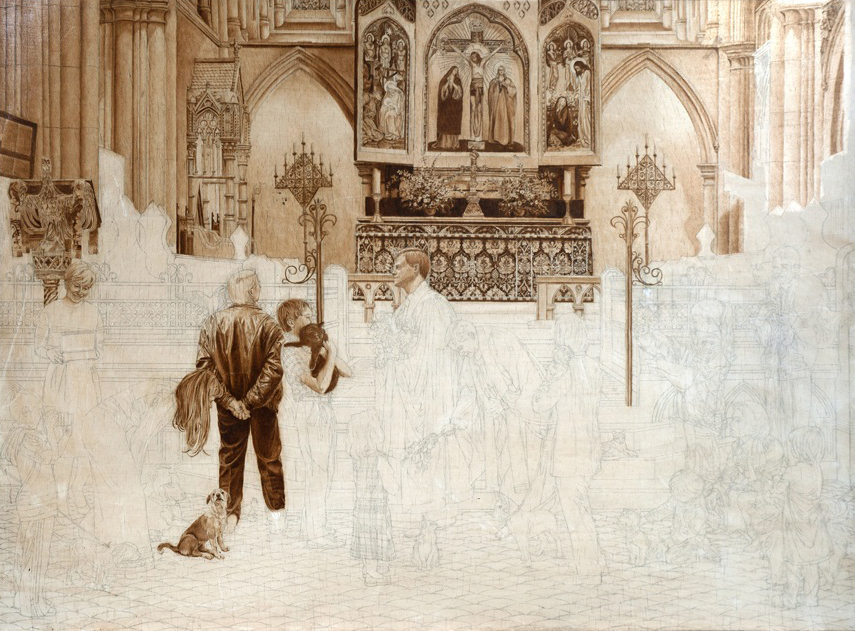
Photo ©2011 Sarah Preston
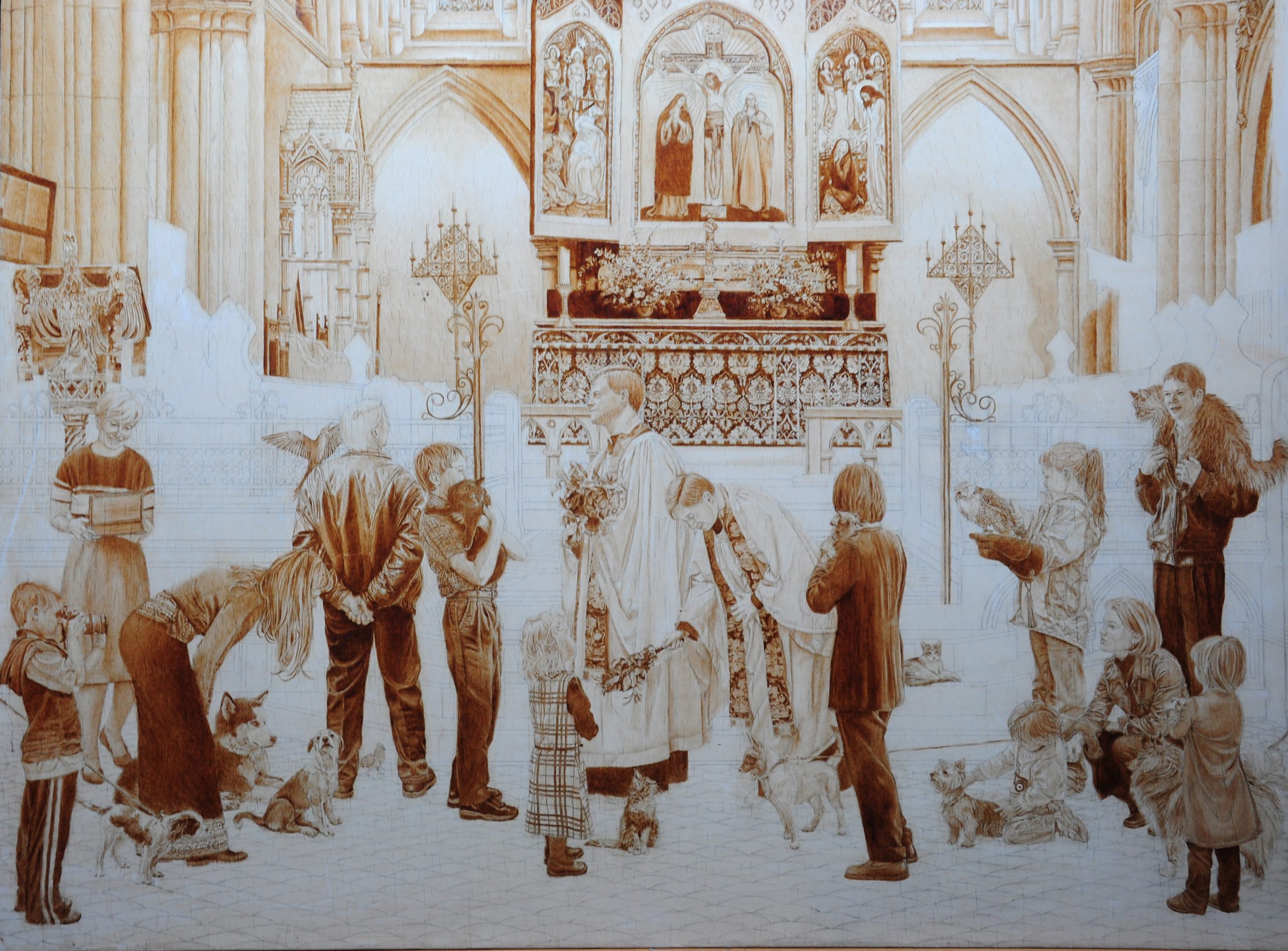
Photo ©2012 Ann James Massey
The underpainting of burnt umber on the Sapele mahogany panel unfortunately took three more years to complete due to a long hiatus caused by a minor right hand injury that morphed into a serious complication: Complex Regional Pain Syndrome. In 2013, Monica Gomez conducted an interview with me on KTEP radio that provides a little background. My hand will never return to pre “fall” mobility but the syndrome miraculously went into remission after three months of therapy. With a total of almost two years of intense physical therapy in the “torture chamber and on the rack” to unfreeze individually all the finger joints and wrist, my hand obviously manages quite well enough as evidenced by the completion of the painting.
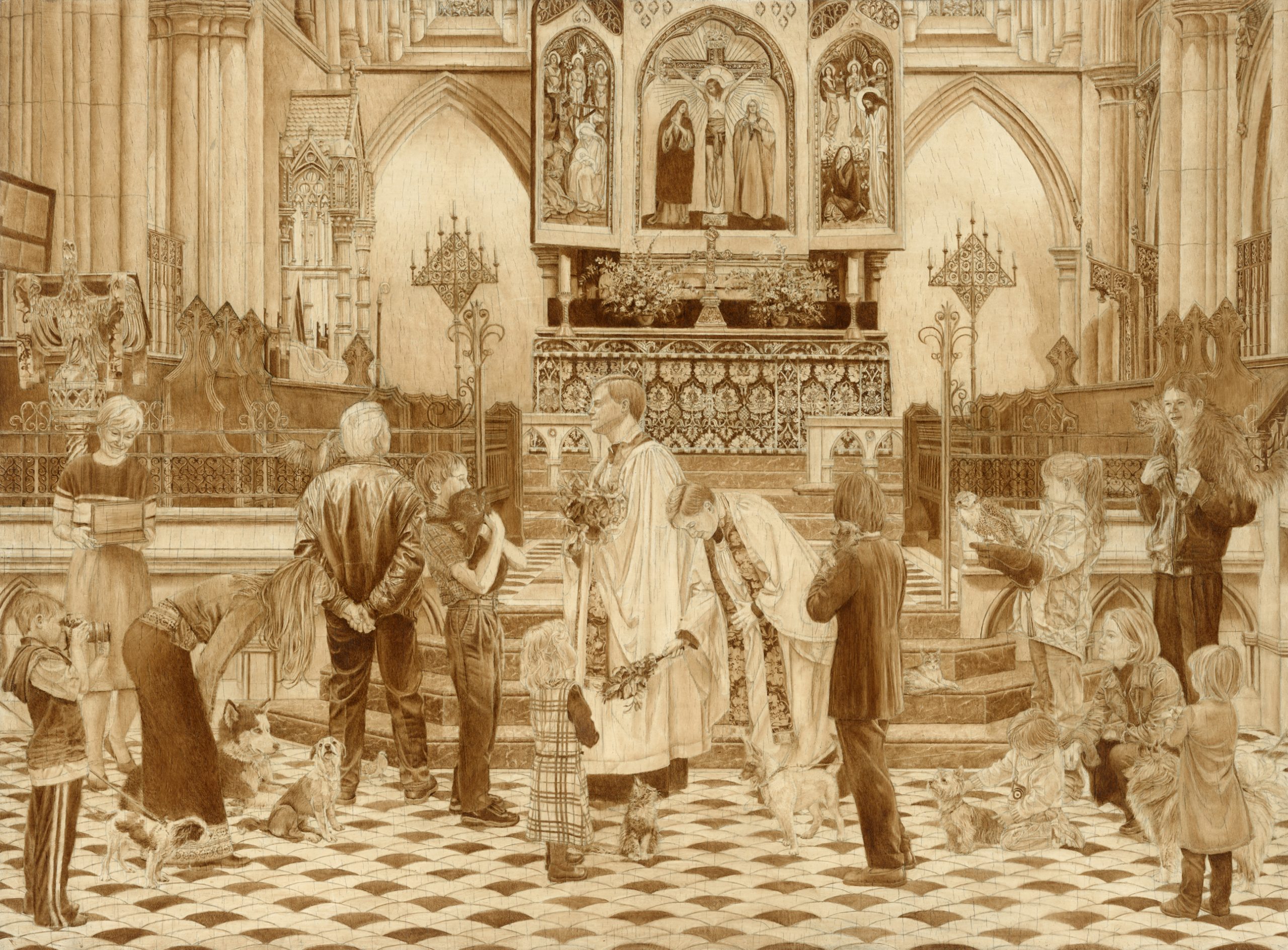
©2013 Ann James Massey
Working with traditional techniques including mixing my paints from powdered pigments, I painted at least three more layers of full color on most of the painting followed by some final scumbling and glazing. Started in 2009, after roughly 8 years of actual work, et voila: “The Blessing of the Animals” practically finished December 30, 2017, just in time to fly back to El Paso for my mother’s 95th birthday and to send it to it’s first exhibition in New York where it also won it’s first award.
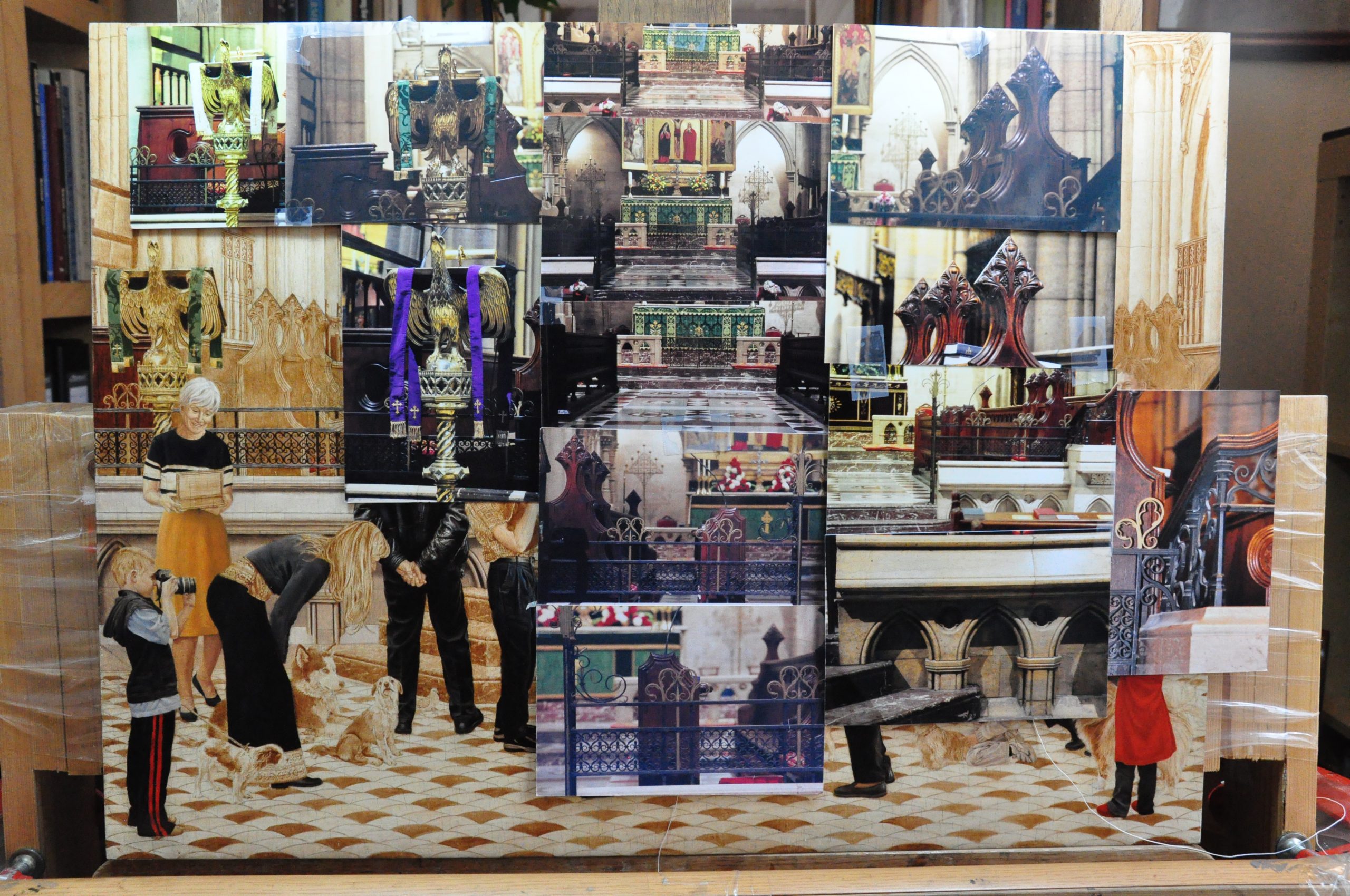
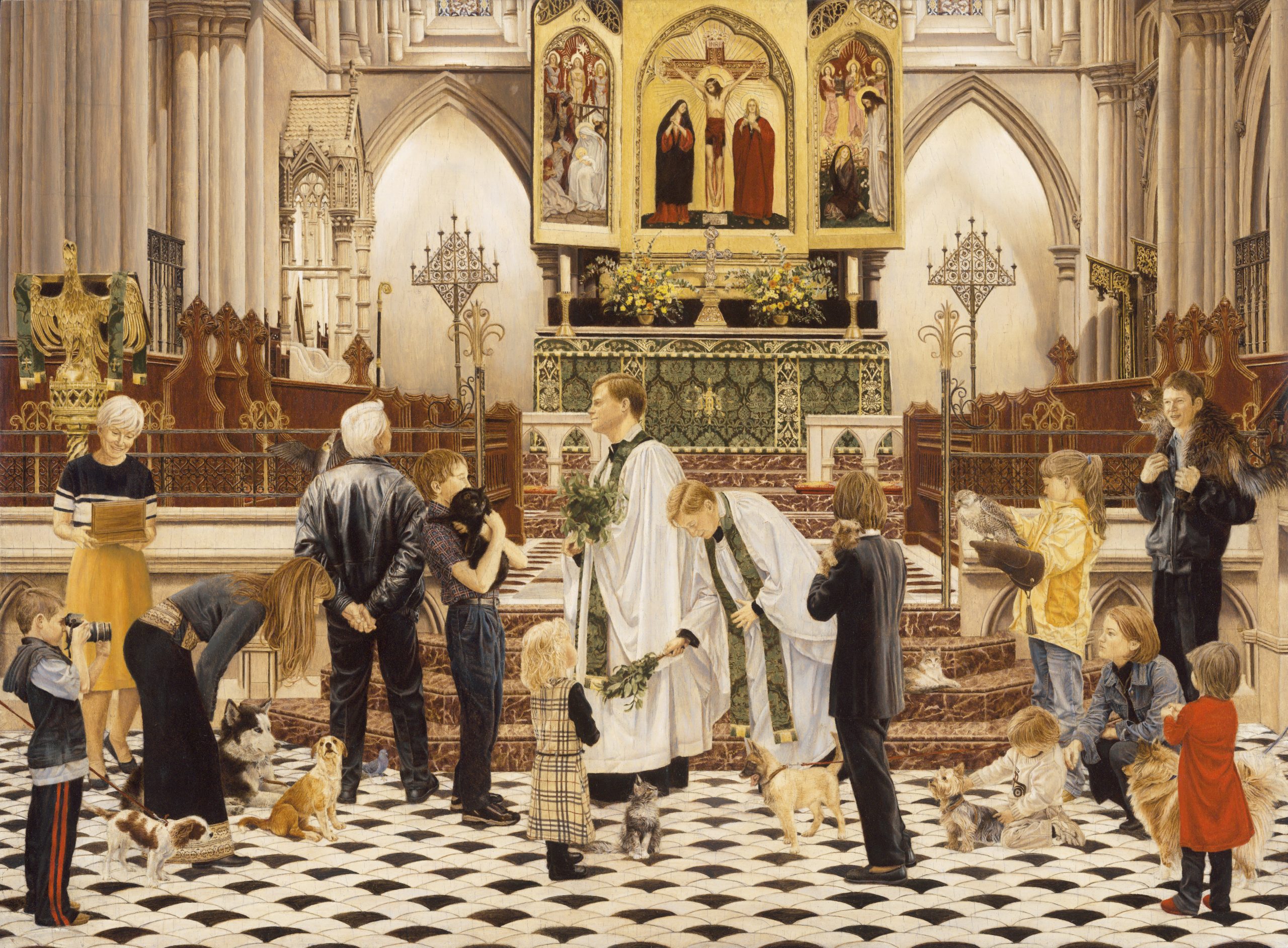
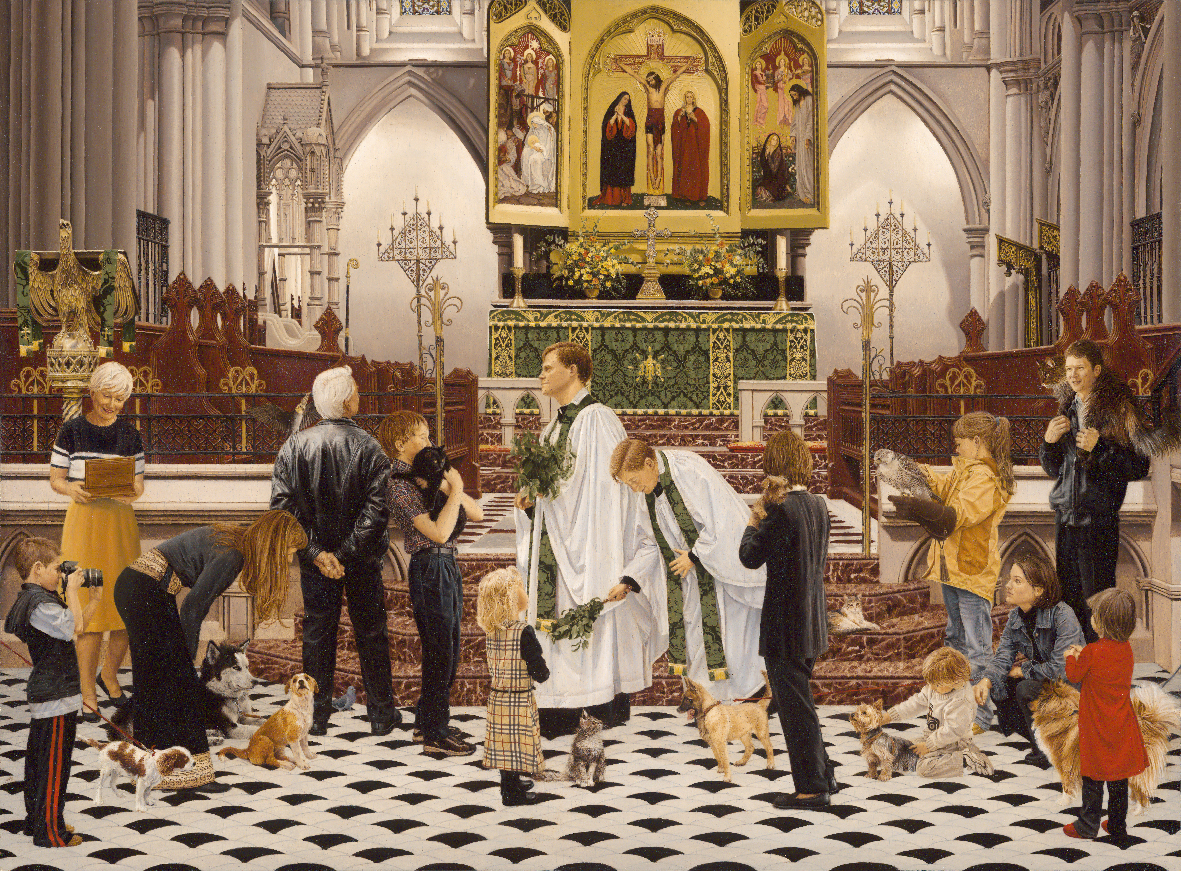
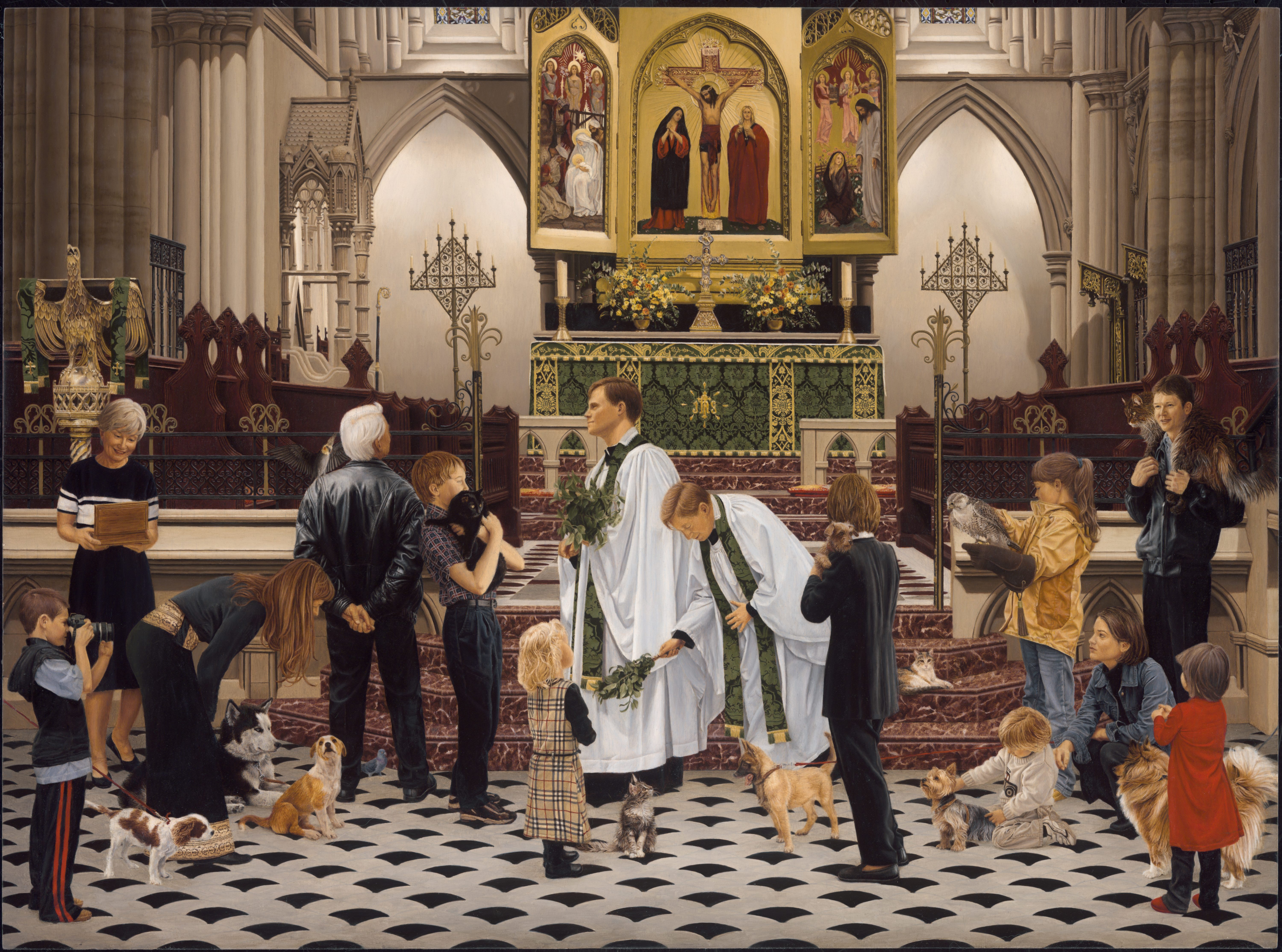
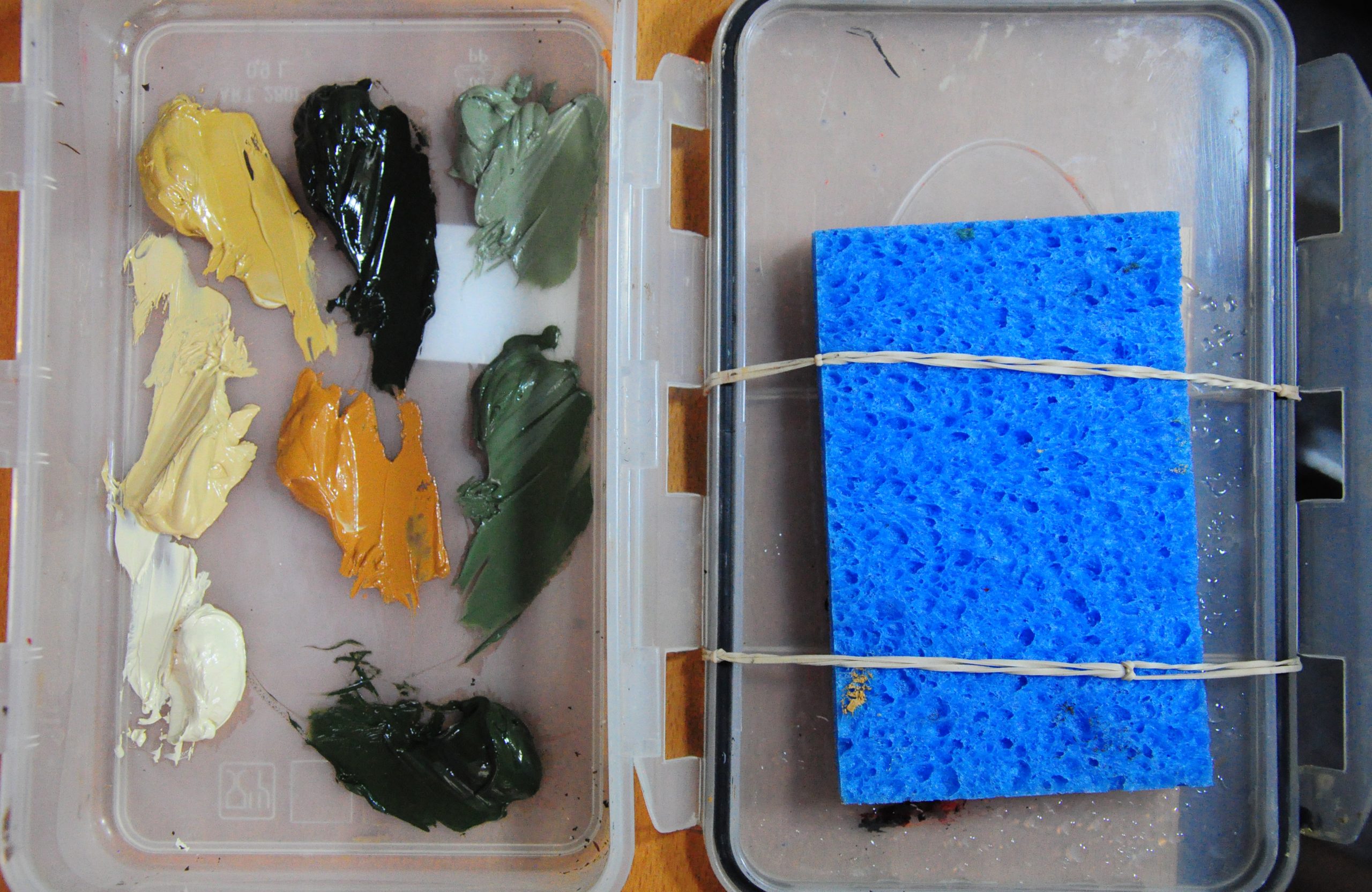
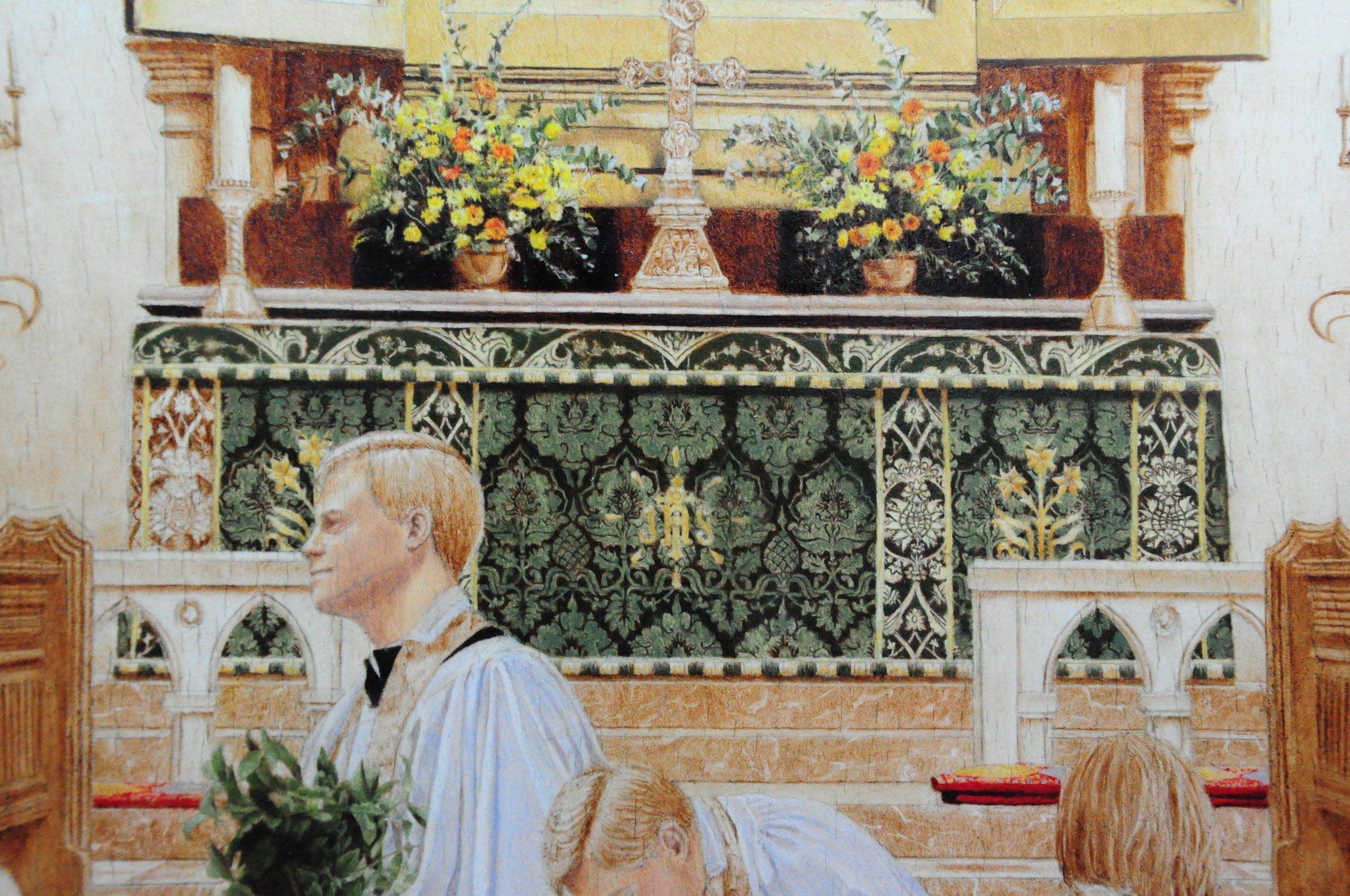
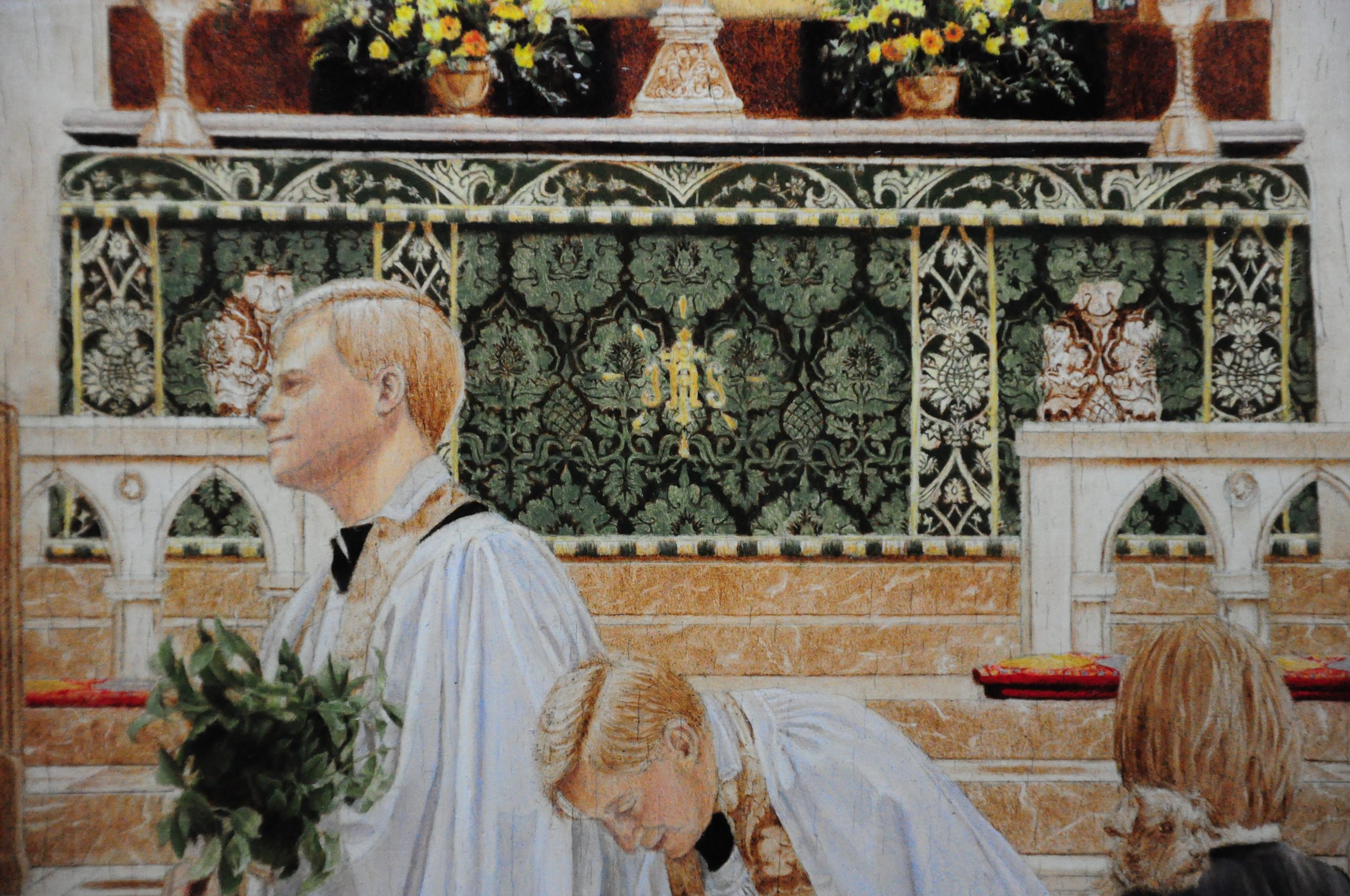
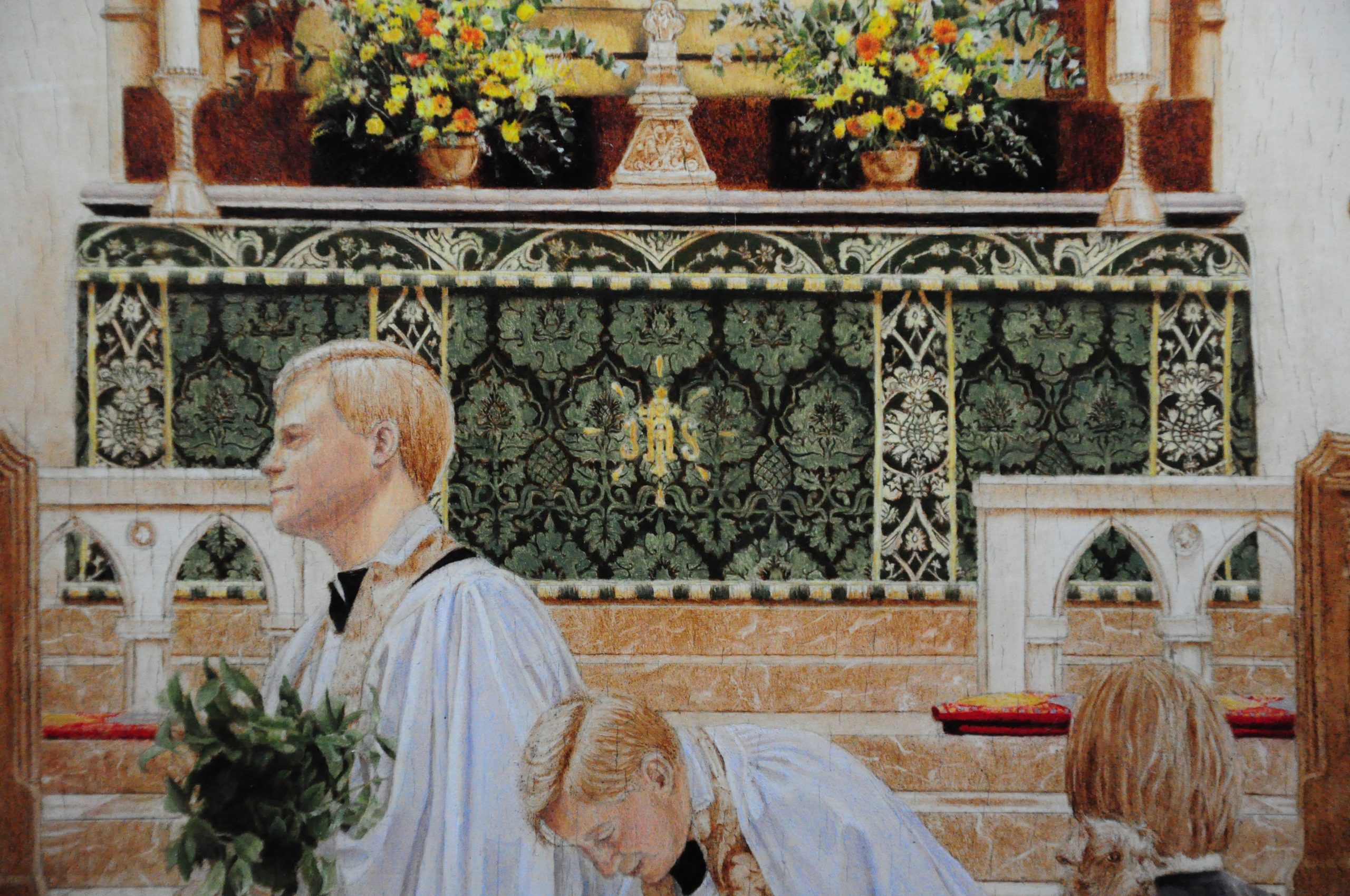
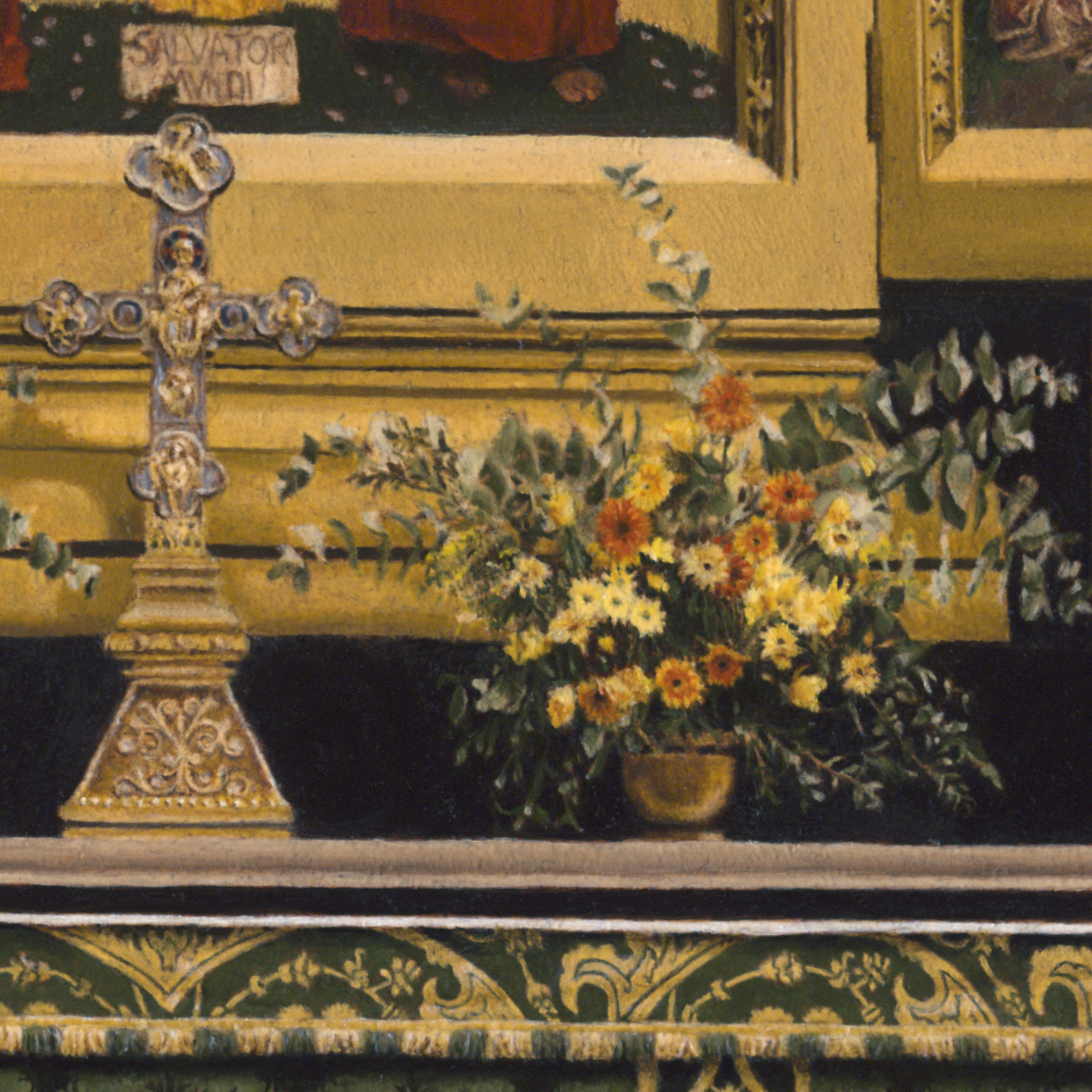
©2017 Ann James Massey
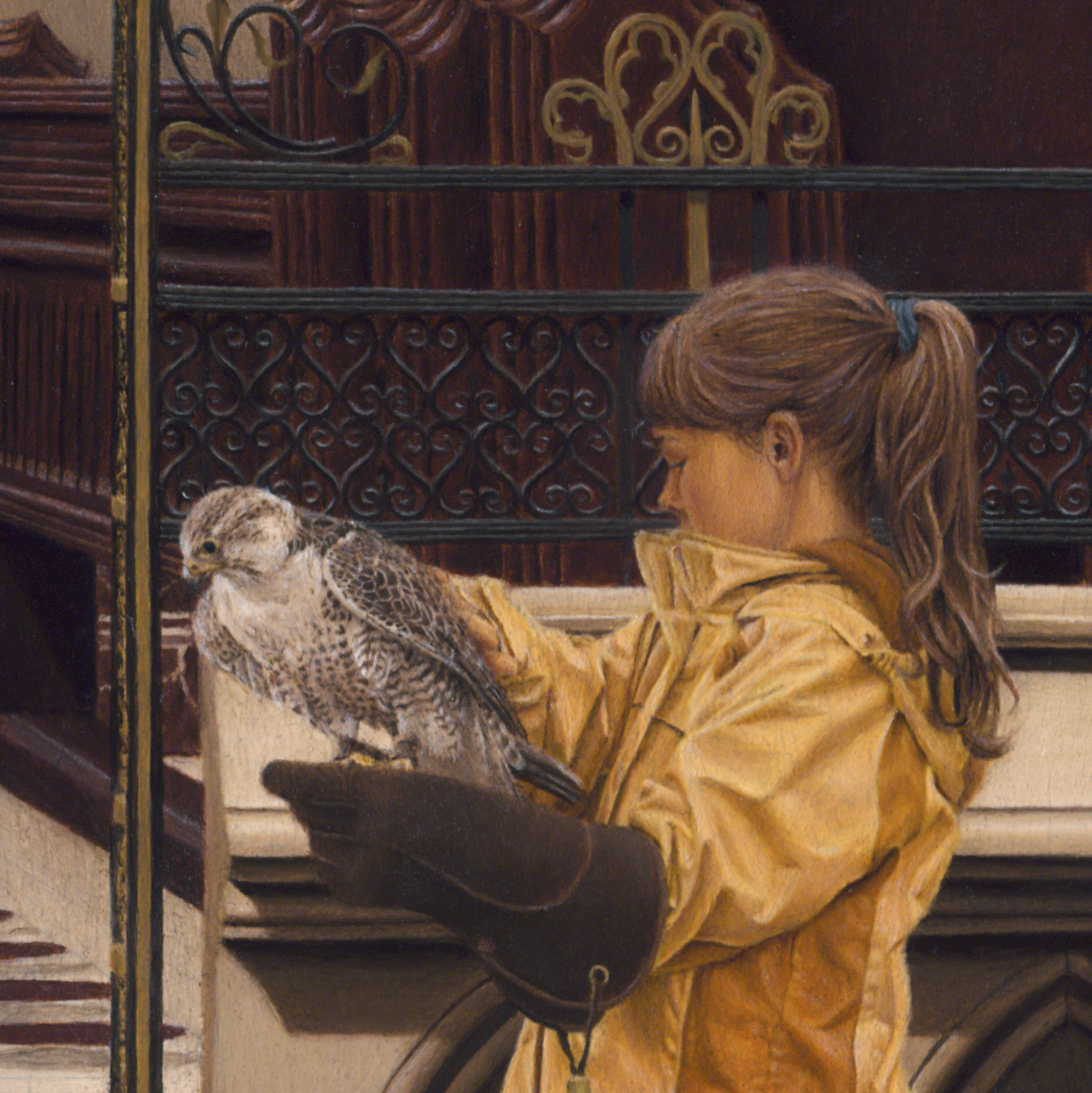
Subjects
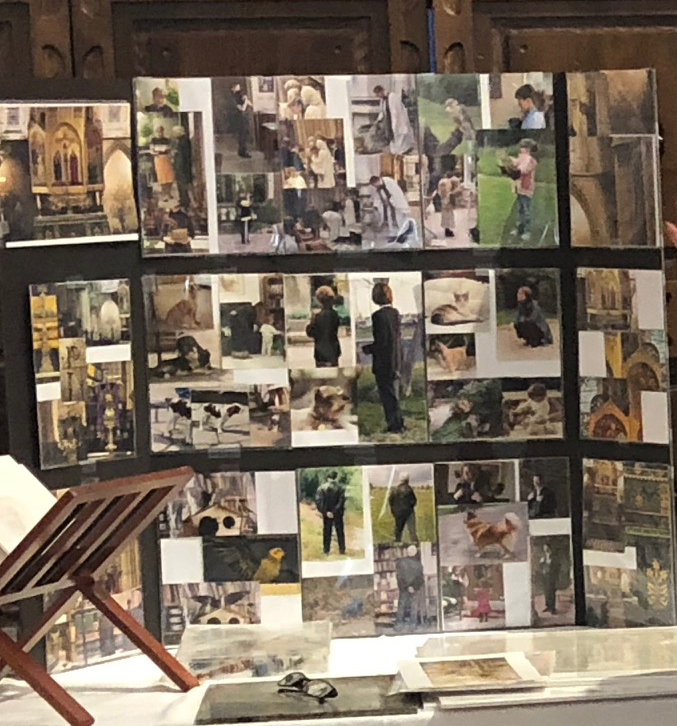
Detail of a photo by Holly Cobb ©2018

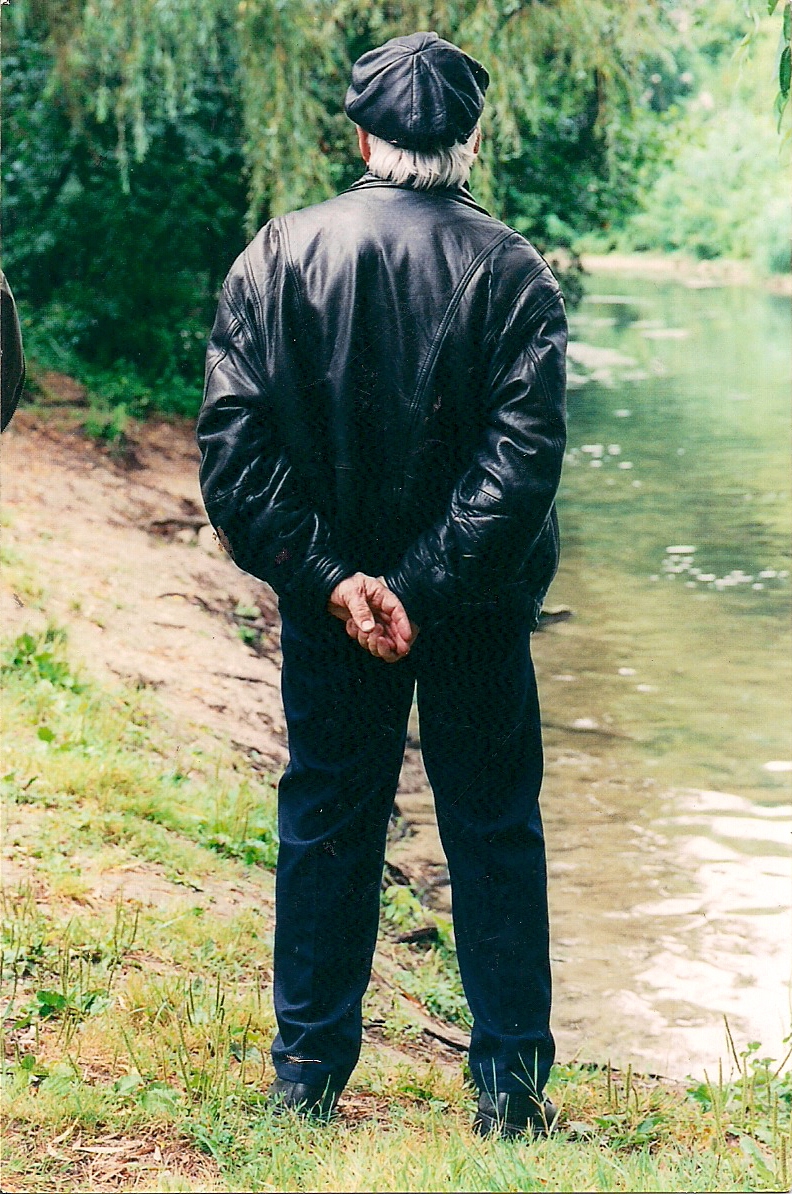
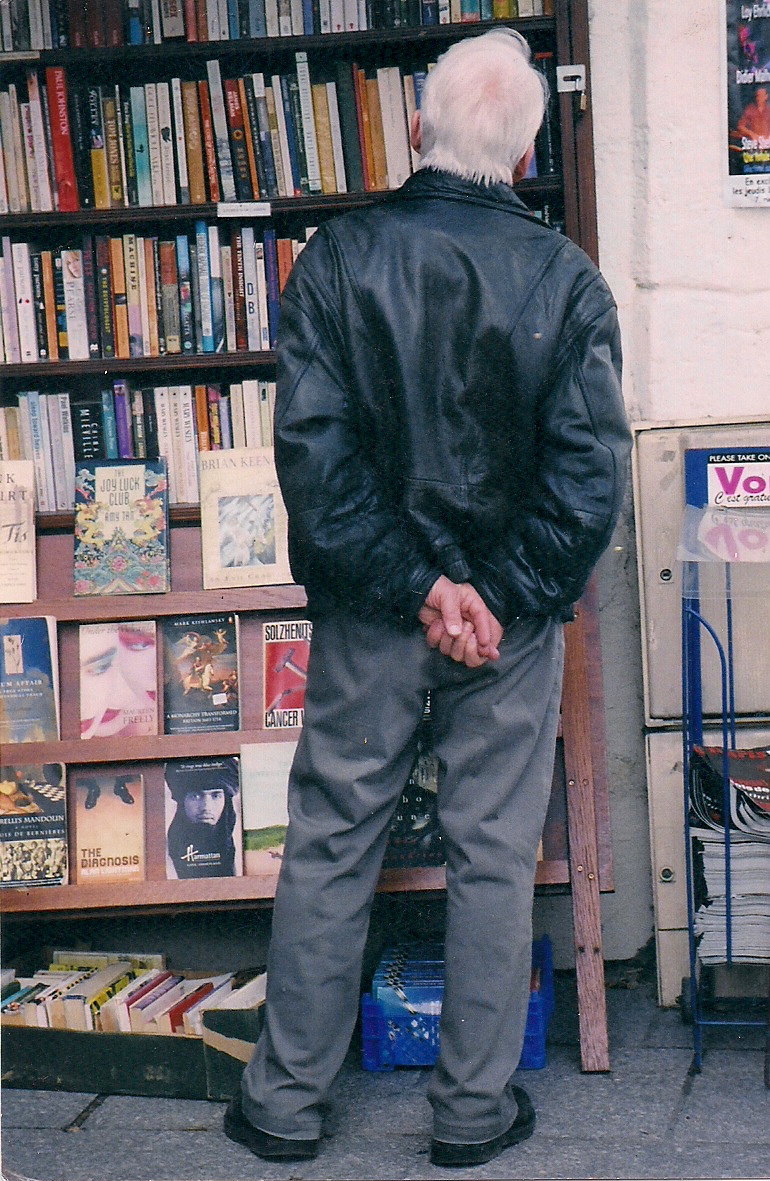

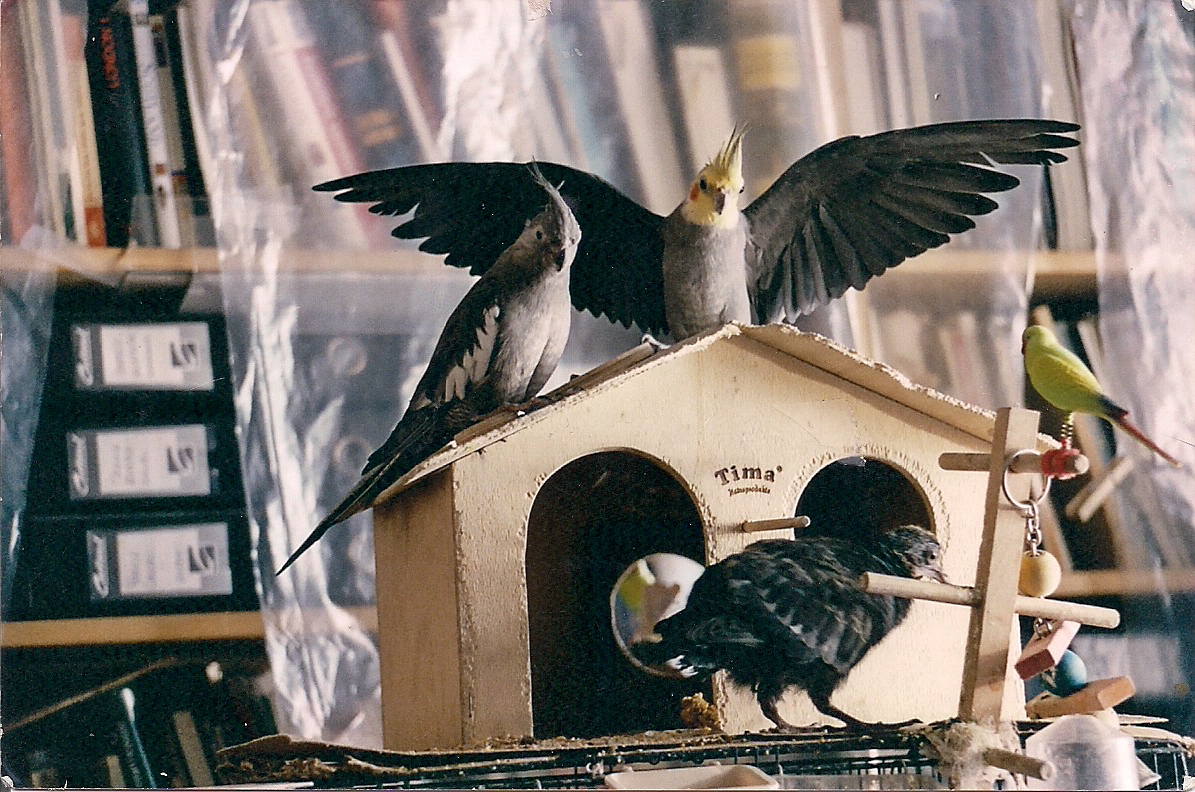
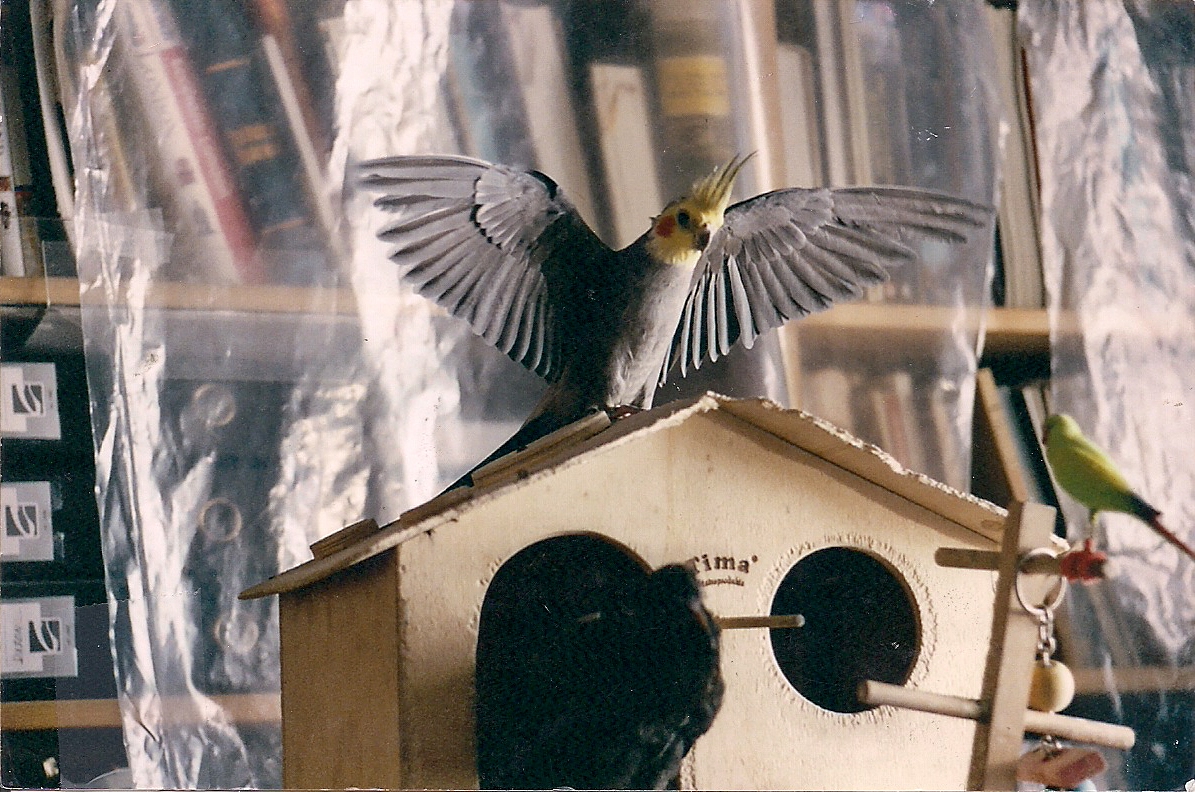
Starting from the left (drawn from over 26 years of my original source material and sketches)
1st Marshall Ordish, my great-nephew (brother Frank James’s daughter Jeanette and her husband RC’s son)
2nd Annick le Sassier Boisauné (a sister of my better half Henri) holding the music box my father made for me and contains any small pet the viewer imagines: parakeet, mouse, hedgehog, gecko, hamster, tarantula, turtle, baby rabbit, etc. The hands in the painting actually belong to an artist friend, Mary Villon de Benveniste, who posed for me in the Cathedral holding the music box.
3rd The Cavalier King Charles Spaniel and…
4th the Husky are two of the hundreds of random pets I’ve photographed during my many travels; I’ve also done a miniature drawing of him and used him again in For Art’s Sake
5th Dale Moore, a second cousin’s ex-wife (and who can also be seen in La Maison de Poupées), looking down at…
6th Soleil (while a puppy). Soleil’s mother was most likely a mix of Sheltie, Corgi and perhaps Basenji, while her father was just passing through. Though I had to put Soleil down at the age of 12 due to advanced cancer in 1993, I still dream of her now and then and wake up in tears to find she is not by my side. Nonetheless, she is alive in my painting.
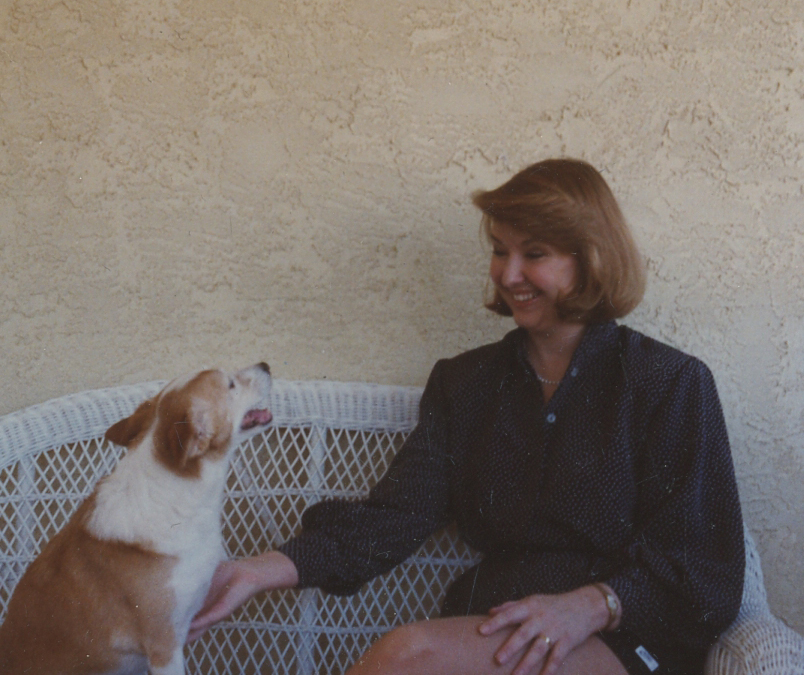
Photo ©1987 Fred K. James
7th My better half, Henri Bérenger.
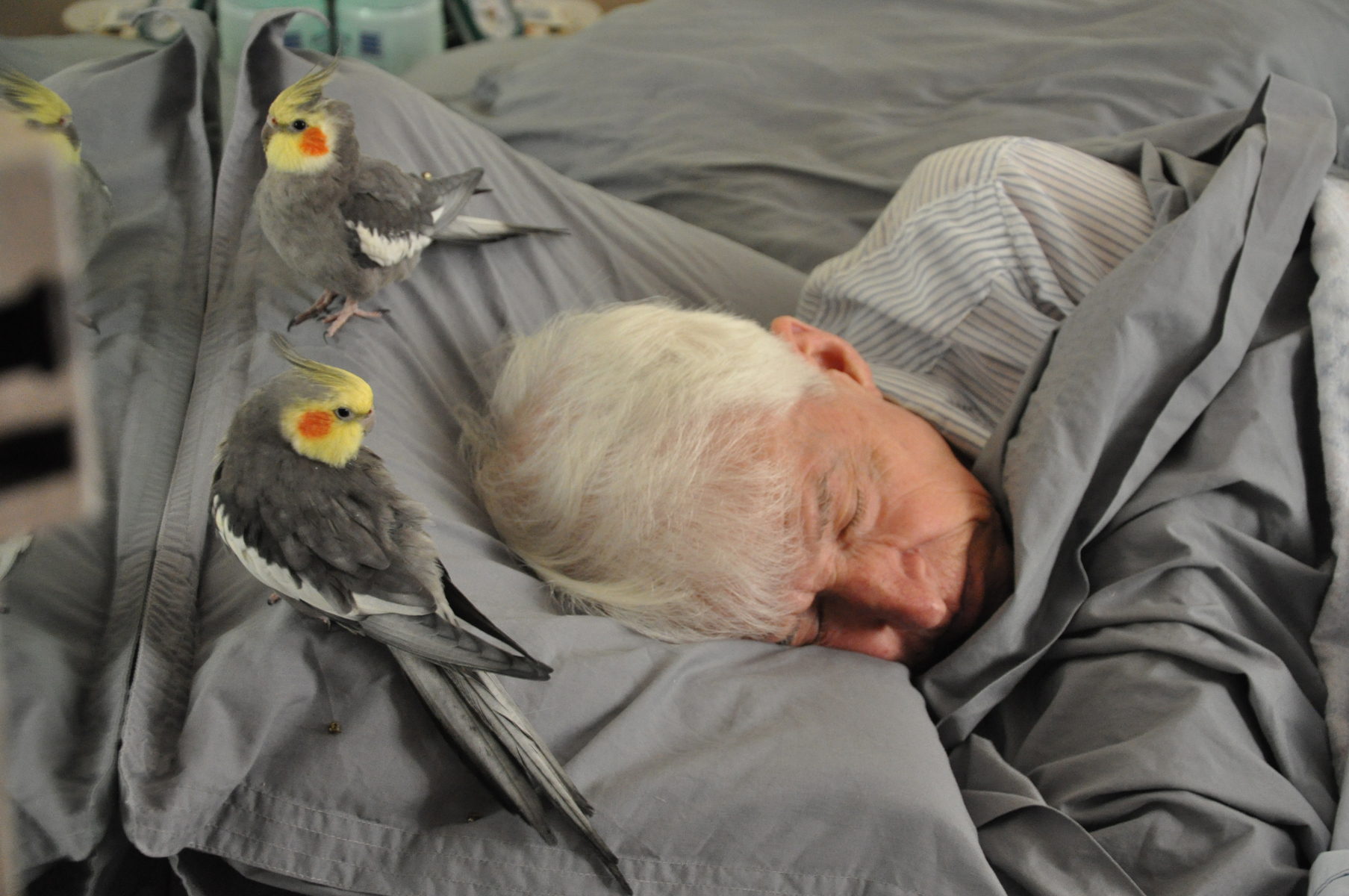
Photo ©2012 Ann James Massey
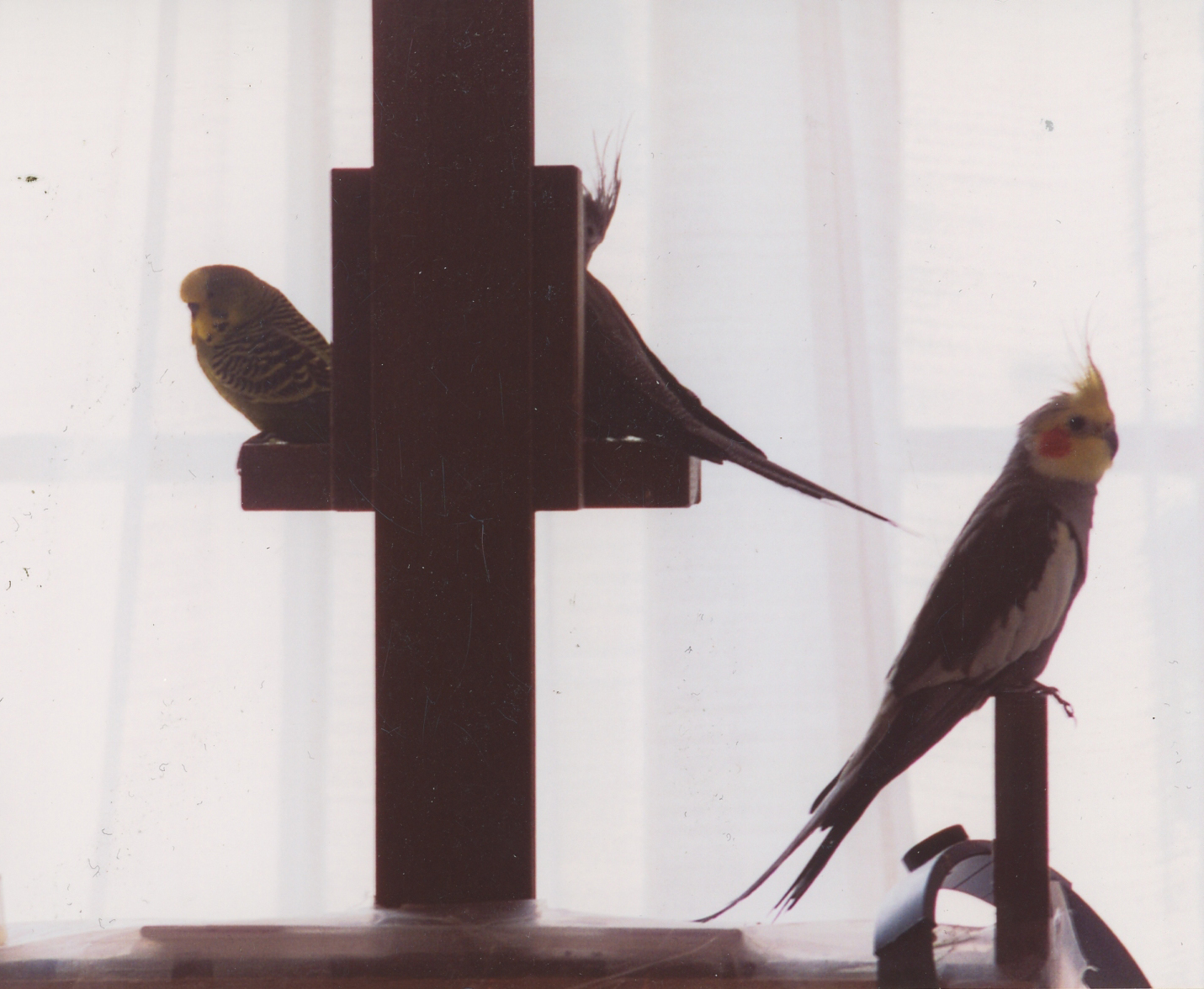
Photo ©2004 Ann James Massey
8th One of our cockatiels in on Henri’s shoulder. We currently have two cockatiels and one budgie (parakeet) who have the same cage as us…our tiny Paris apartment.
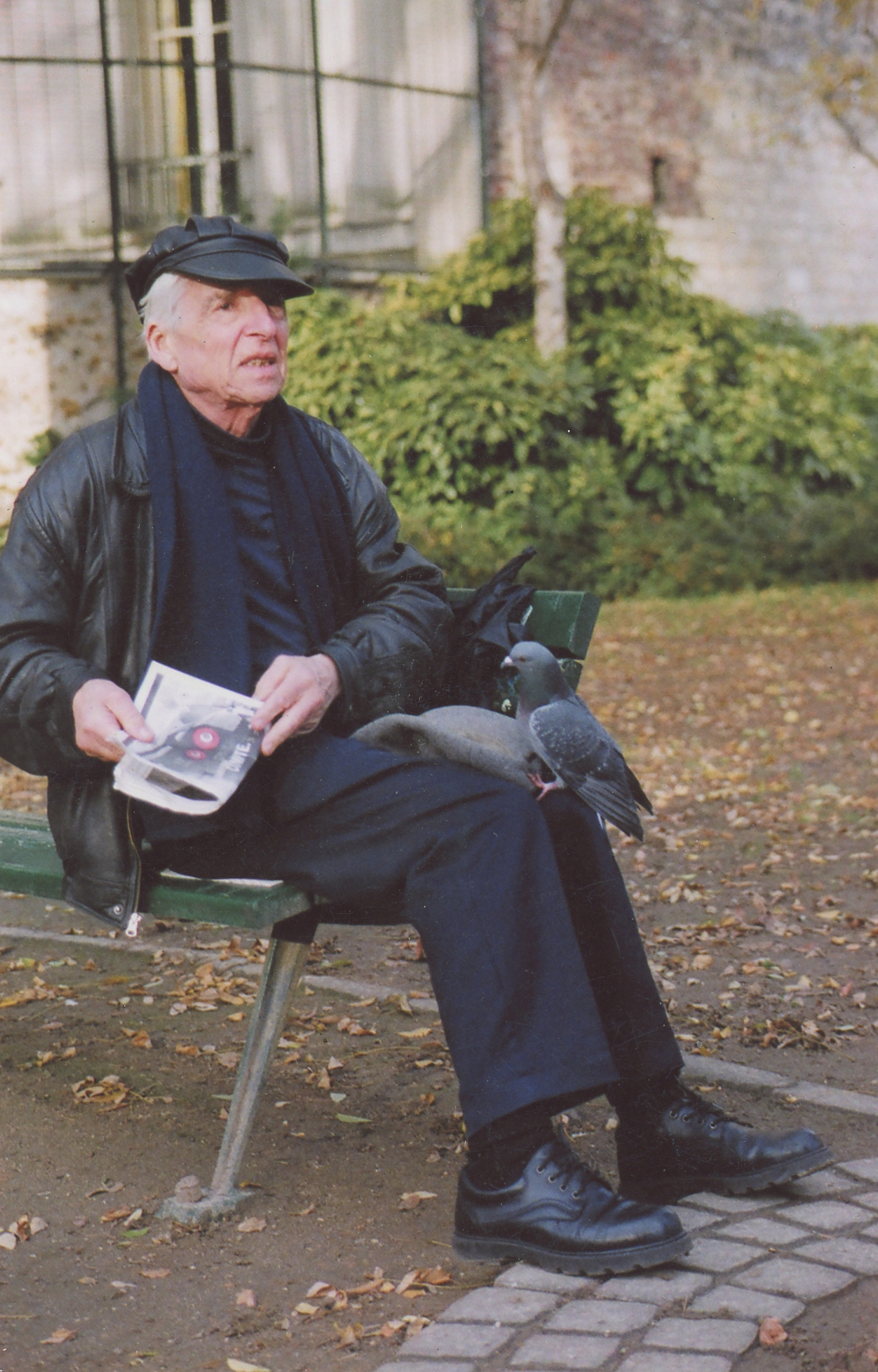
Photo ©2006 Ann James Massey
Nothing so ugly as a baby pigeon. I named him Phyllis for Phyllis Diller for her hair and his prickly baby feathers.
9th Phyllis is on the ground near Henri’s feet. He was the almost dead baby pigeon that I found in our courtyard, then raised and rehabbed and let him free in the nearby children’s park where I had taken him for “walkies” before he could fly. I never trained him as a pet, but notwithstanding, for years, Henri and I would go to the park, call his name, and he would fly to our feet and run beside us as we would walk to “our” bench. And yes it is the same bird on our laps; the sunlight has just brightened Phyllis’ wings as it has my brown hair.
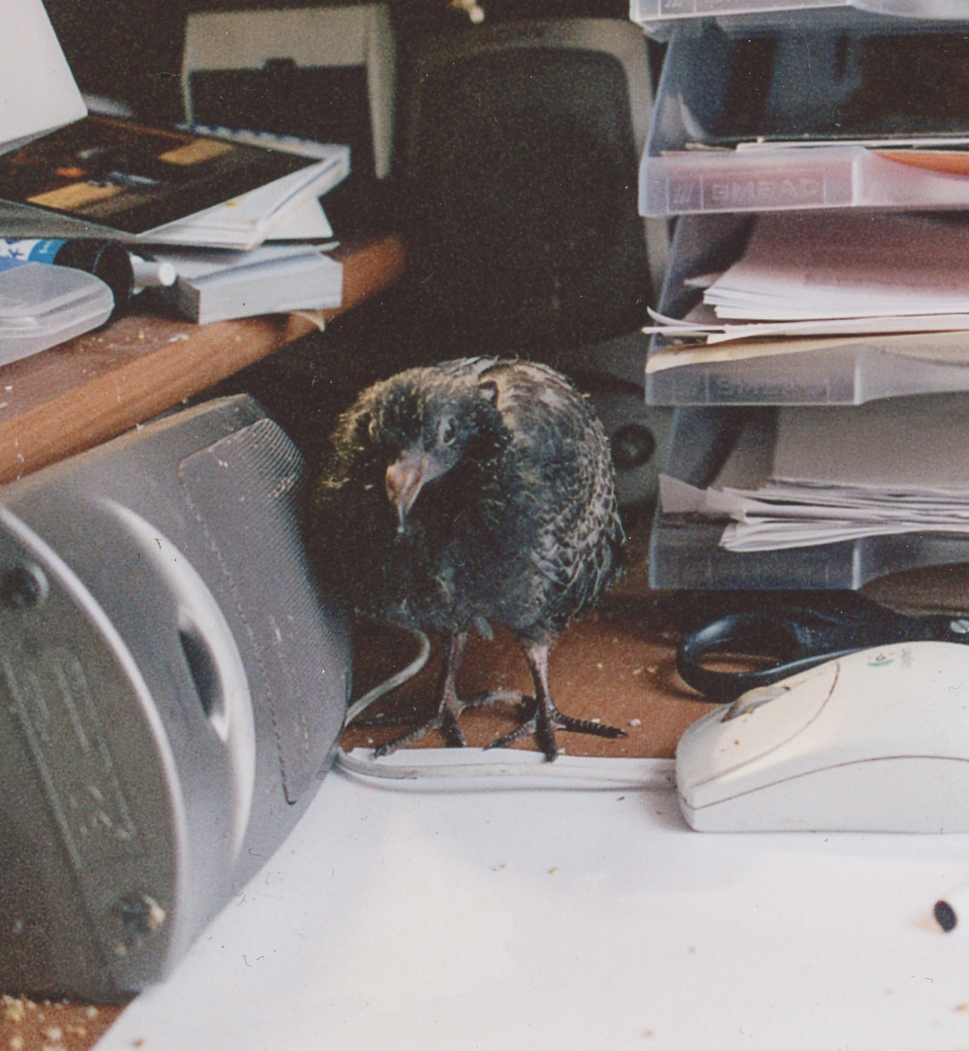
Photo ©2006 Ann James Massey
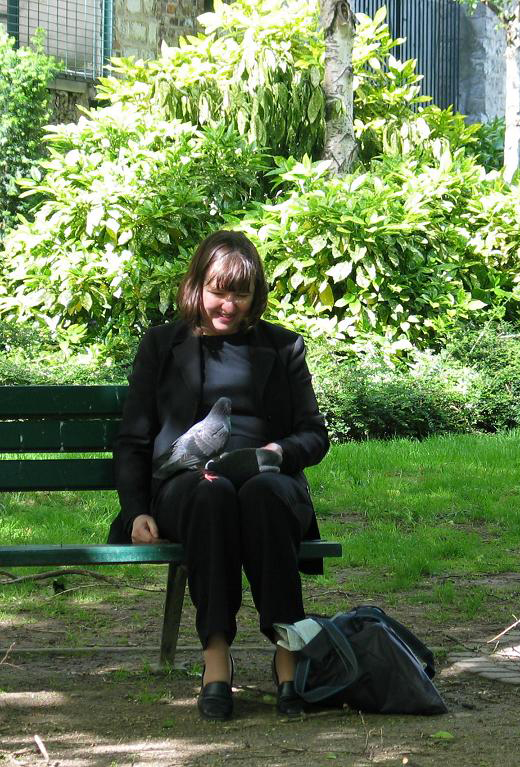
Photo ©2006 Susan Niehans
I often give my sweet birds female names when we get them, however they are always too young to determine their sex…then they all grow up to be male. I never named any Sue, though I have had a couple of Herbirds.
10th Derek James, my nephew (brother Keith and his wife Ann’s son) and
11th Derek’s cat Cleo.
12th Sophia Zaboukos (daughter or Troy and Moya) is a child I saw attending a Blessing at the Cathedral.
13th The cat being blessed is from a photo I took near St. Severin in Paris.
14th The Rev. Jonathan Huyck, former Canon Pastor of the Cathedral, on staff from 2004 until 2010 when he returned to the States with his family to serve as Rector of Grace Episcopal Church in Providence Rhode Island.
15th The Very Rev. Zachary Fleetwood, Dean of the Cathedral 2003-2011 (9th Dean since the inauguration of the Cathedral on Thanksgiving Day in 1886). He retired from the Cathedral to become rector of St Columba’s by the Castle in Edinburgh in order to devote more time to writing, service and spiritual matters.
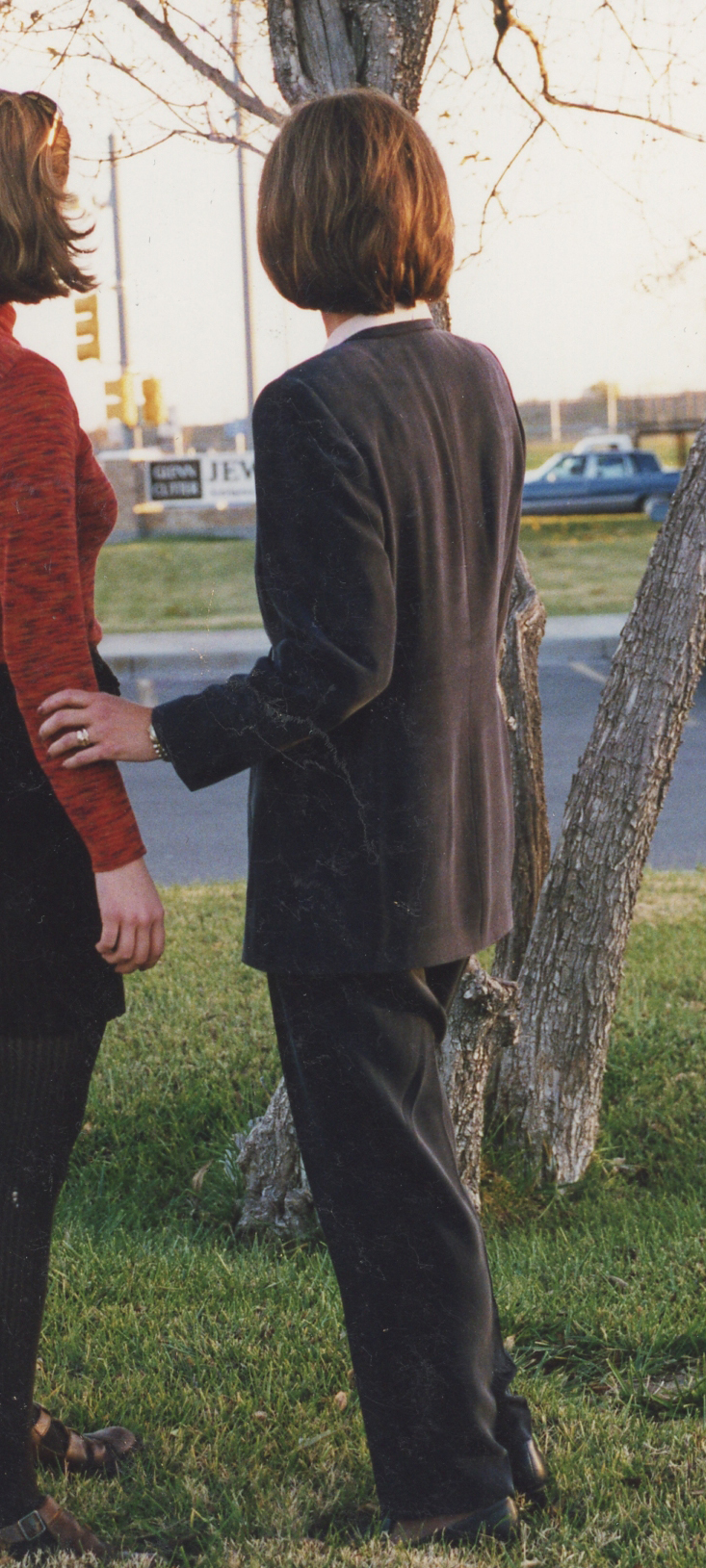
Photo © Ann James Massey
16th Rosie Carlson, wife of El Paso artist Robert Carlson. Her shoulder, elbow and arm belong to Sondra Sefton who agreed to pose for me in the Dean’s Garden after a Junior Guild luncheon. At my request, Sondra wore my black jacket and clutched her purse to her chest. I had changed the angle of the Rosie’s arm and needed to work out the way the suit and arm shifted realistically as Rosie is now holding the precious rescue dog, Maxine in my painting.
17th Maxine, the rescue dog was owned by Bob and Rose Ann Hoy (first collectors, then friends).
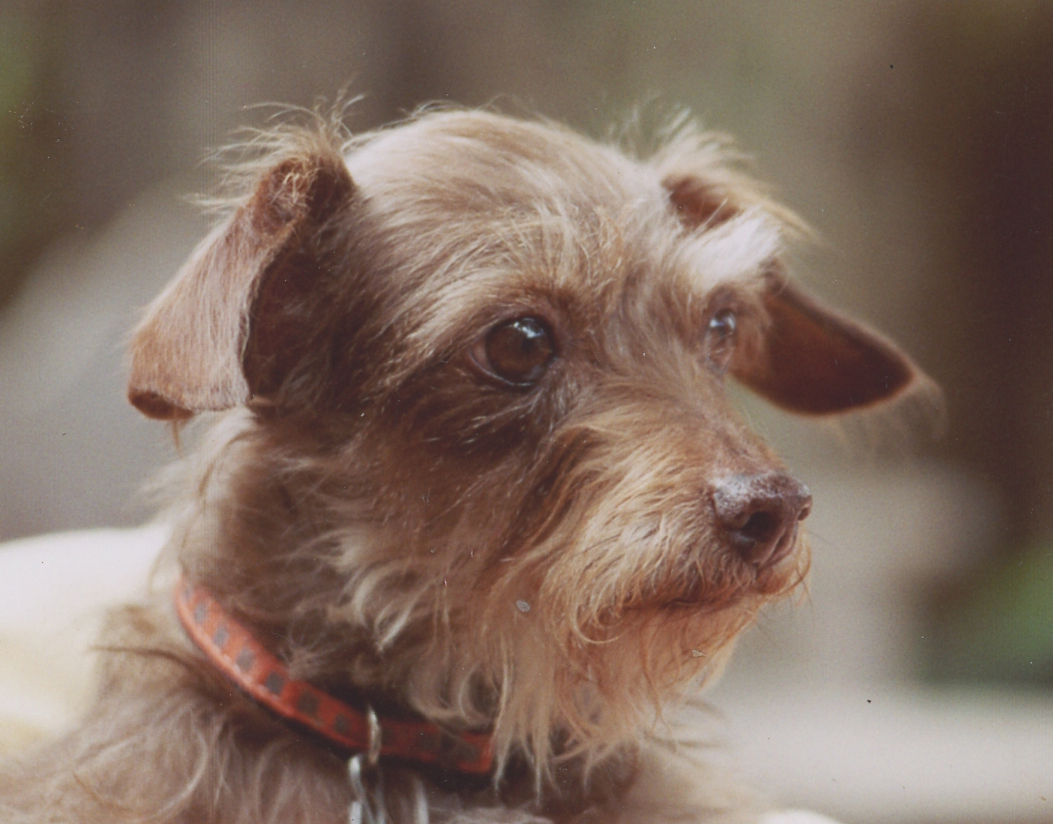
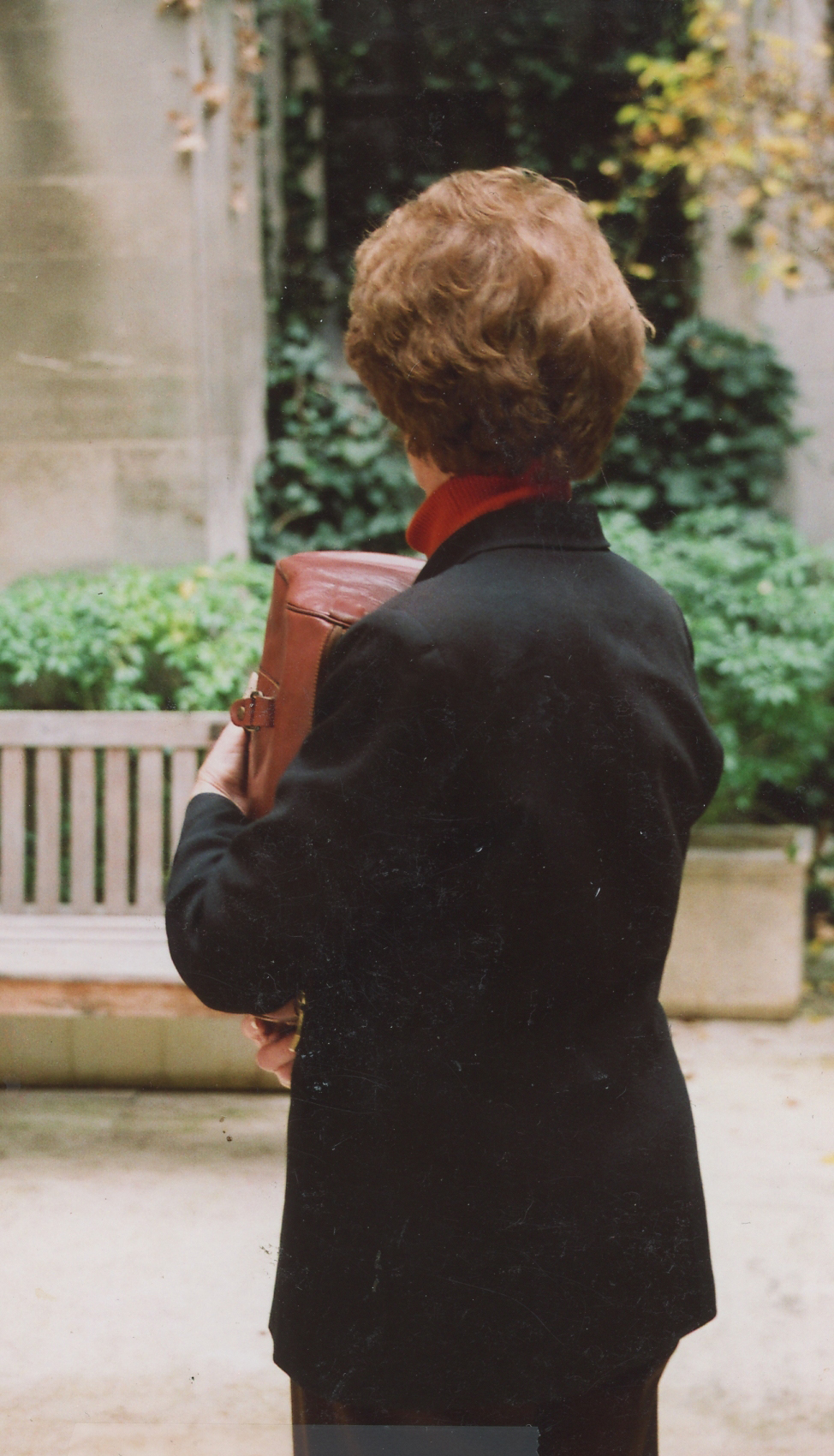
Photo © Ann James Massey
18th The puppy straining against the leash was another participant in a Blessing.
19th The cat on the steps (the only participant looking directly at the viewer) is Lizzie, another of Derek’s cats, and who was extremely shy but bonded with me nonetheless during a two month overlapping stay at Mom’s with Keith’s family (due to fire damage at their home being repaired).
20th Maxwell Moore, son of Dale – the 6th subject – and my second cousin Michael Moore.
21st Maxwell is petting a Yorkie I saw at a Blessing.
22nd The girl was based on a photo I took at the North East Falconry Centre (now the Huntly Falconry Centre) in Scotland. I’ve changed the face to my great-niece’s, Kassidy Ordish.
23rd I’ve substituted a peregrine falcon from the Centre for the owl the young girl was petting. While I was at the Centre, they let me, as an American, receive/feed the bald eagle, though they had a gentleman next to me to help support my arm underneath from the initial shock of the weight of the large bird when he swooped down and landed on my hand and wrist.
24th Celine, behind Maxwell, worked at my hairdressing salon in Paris and posed for me in the children’s park where we released Phyllis. You can also see her in the Miniature Gallery.
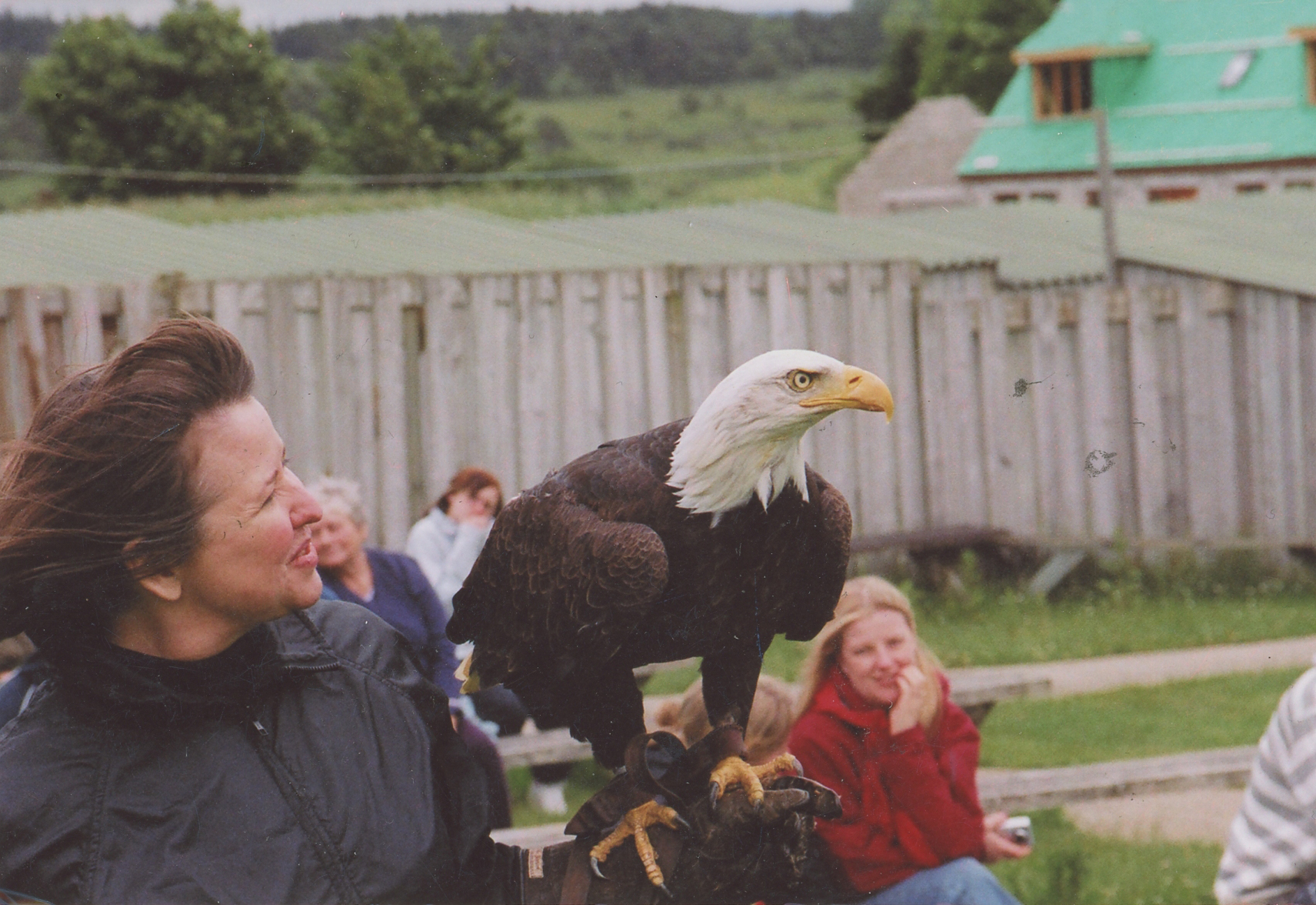
25th David James, nephew and son of my brother Frank and his wife Linda.
26th The impressive Maine Coon cat on David’s shoulders is Ramses and as mentioned above, also belongs to my brother Keith’s family, along with Cleo and Lizzie. The image adds the symbolism of The Good Shepherd to the piece.
27th Kennedy Ordish is another great-niece.
28th I saw this Sheltie on one of my trips to Scotland.
Besides the clergy, there are twelve characters in the painting, a reference to the twelve Apostles.
To keep the eye moving, all the living participants are doing their part by looking in different directions, even in subtle ways. For example, in one area, the cat being blessed is looking up at the hawk and vice versa, the dog straining at the leash is staring at the cat, the child Sophie is looking at the Dean, the Dean is looking at the cat, Rosie holding the dog Maxine on her shoulder is looking wherever you want (the Altar, the Dean, the Canon, etc.), Maxine is looking at something or someone outside the painting, and the cat on the step is looking directly at you (the only participant to do so)…and so too do the rest of the characters continue to keep the eye moving with their lines of vision. The leashes leading out of the painting on either side indicate there are more participants outside the action of the painting, but are helping to keep the painting from becoming overcrowded.
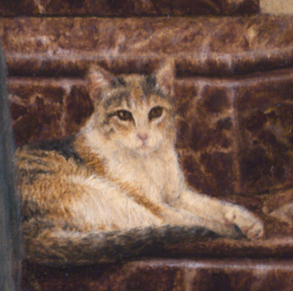
©2017 Ann James Massey
Using the Burberry outfit for the child in the central area allows enough detail and interest to catch the eye but is subtle enough in color to let the eye move on to take in the rest of the painting. The roughly triangular groupings of characters have little gentle overlapping to keep them from being isolated and thus also add to the movement across the whole image. Note the red leash from the straining dog connecting the central group to the right group.
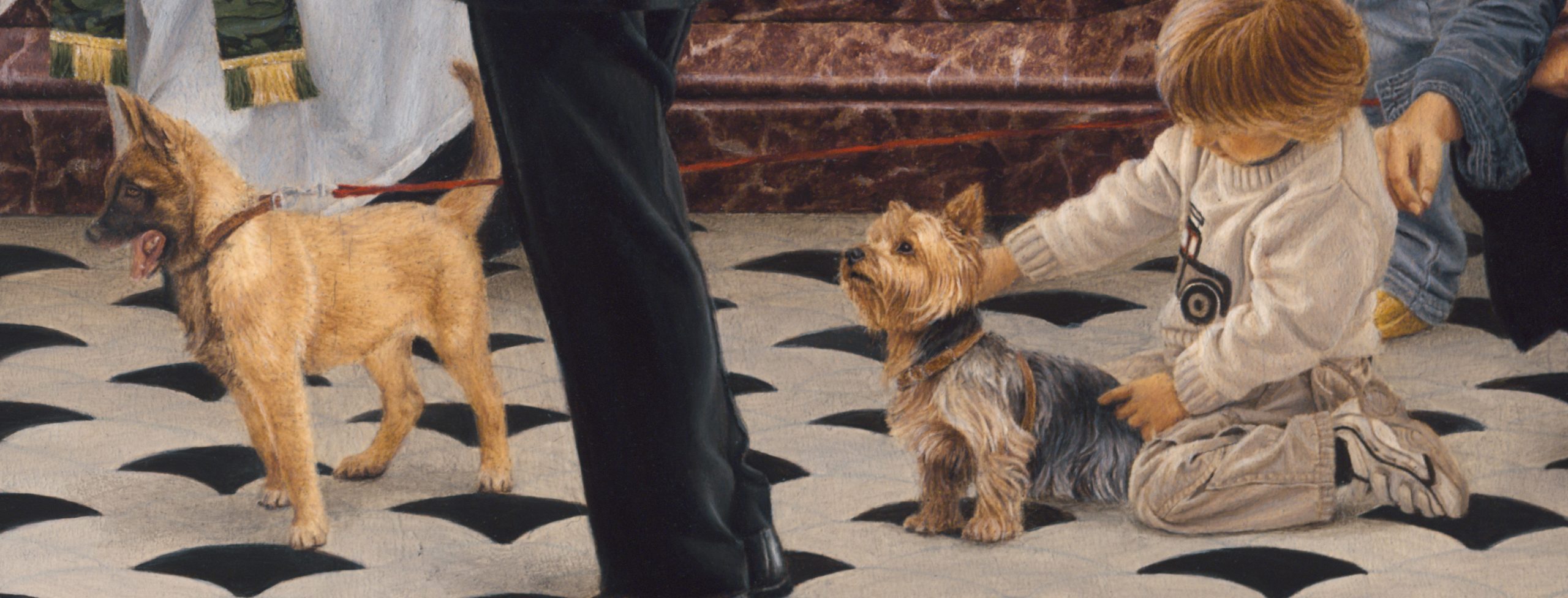
©2017 Ann James Massey
My use of a classical triangular composition for its strength and stability is a common one for me. Note their presence in the individuals groupings as well as in the overall larger composition with the red elements connecting corner to corner at the bottom and then leading upwards from the corners to the altar piece. This is why the children in red in this painting are located on the edges rather than in the central part where I often place them (which additionally would have stopped the eye in this detailed piece anyway).
The use of this design motif is especially appropriate in the larger theme of this painting in that a triangle is a symbol of the Holy Trinity: Father, Son & Holy Ghost.
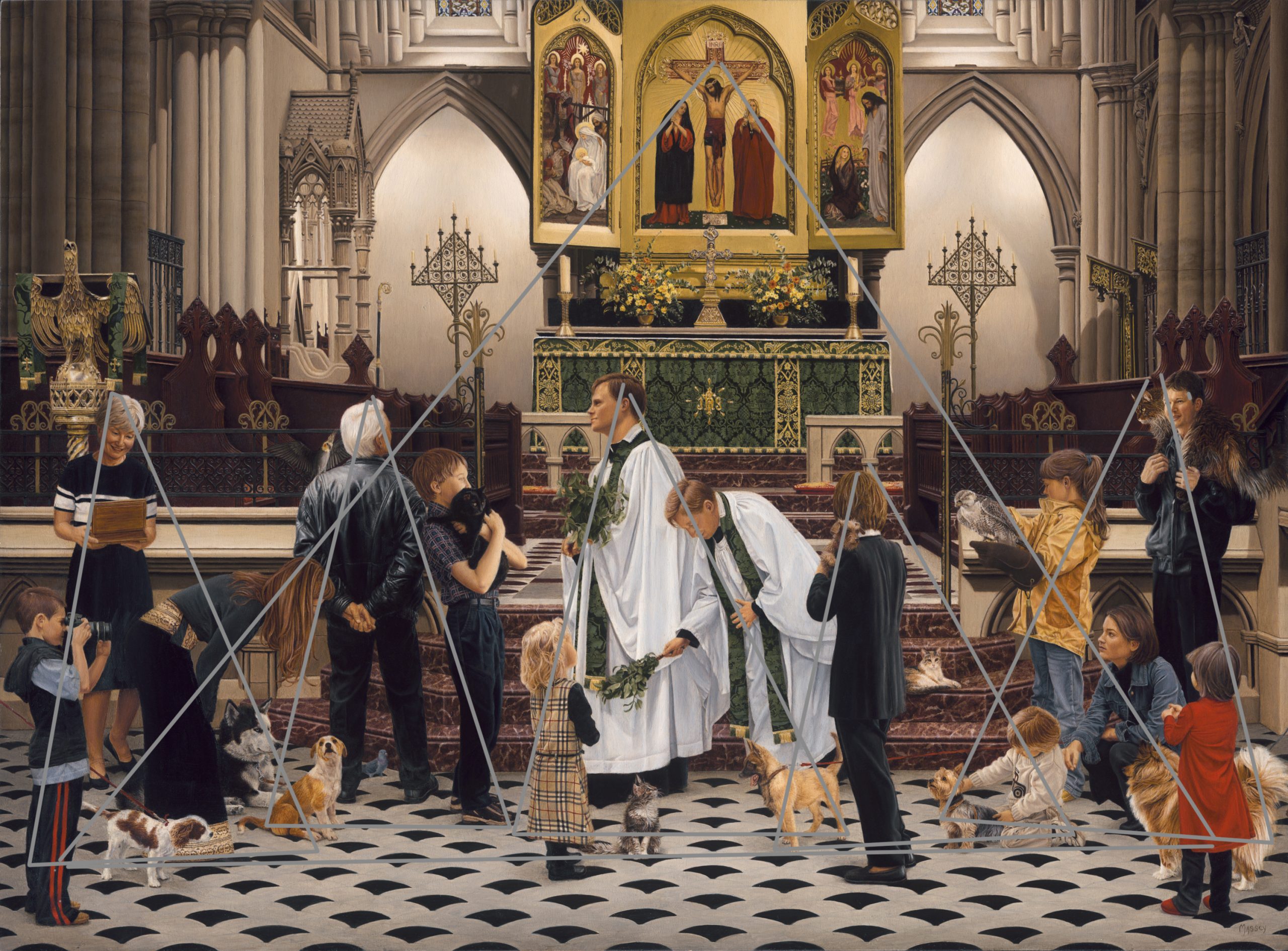
©2017 Ann James Massey
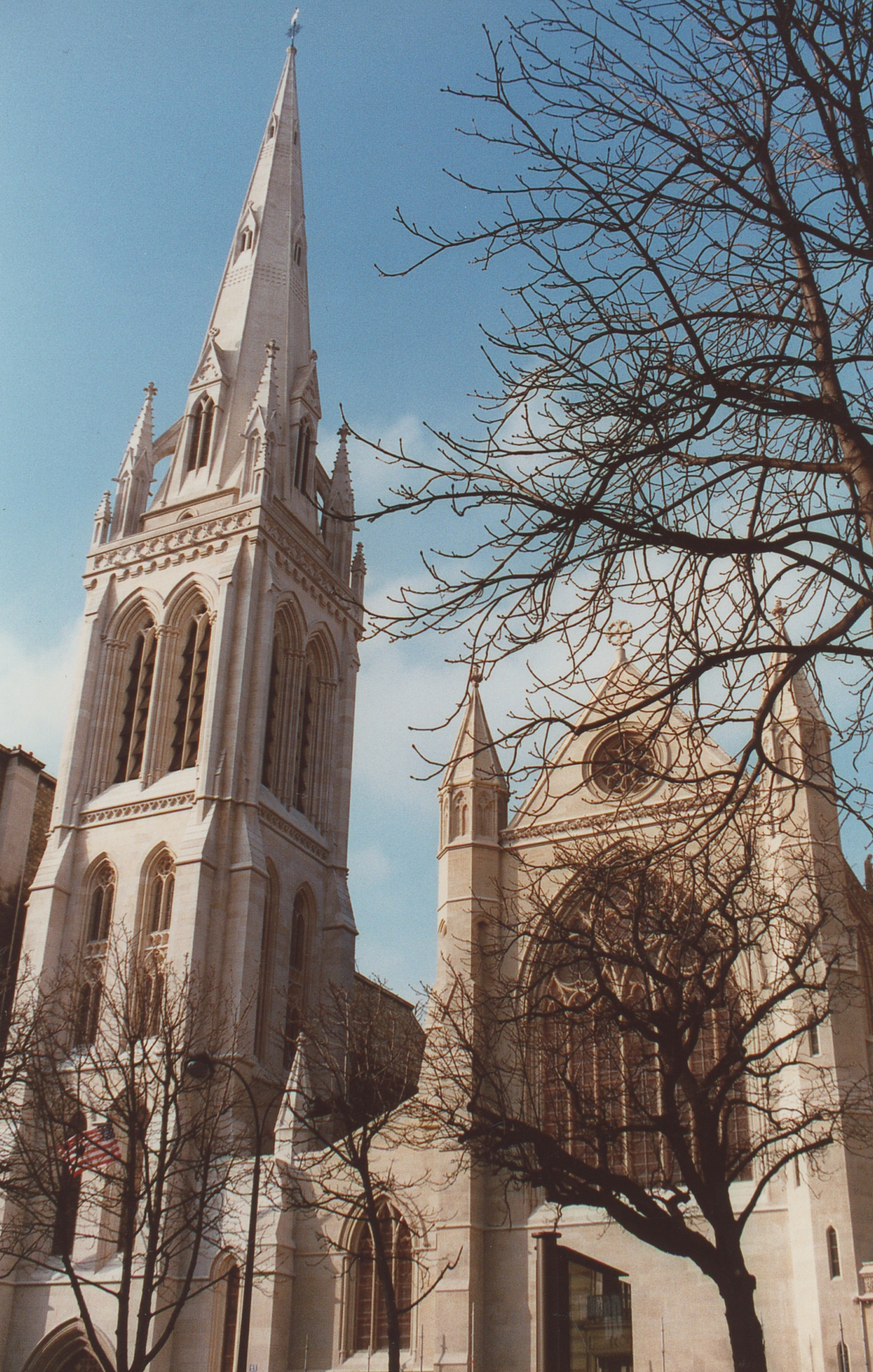
The American Cathedral in Paris, 23 avenue George V, 75008 Paris, France
When in Paris, include a visit to this amazing Episcopal/Anglican Cathedral, consecrated Thanksgiving Day, November 25, 1886, the same day as the Statue of Liberty. The inclusive openness, the palpable faith, the fabulous music, the moving preaching, the glorious neo-gothic setting, and the “at home” friendliness will make this a memorable experience.
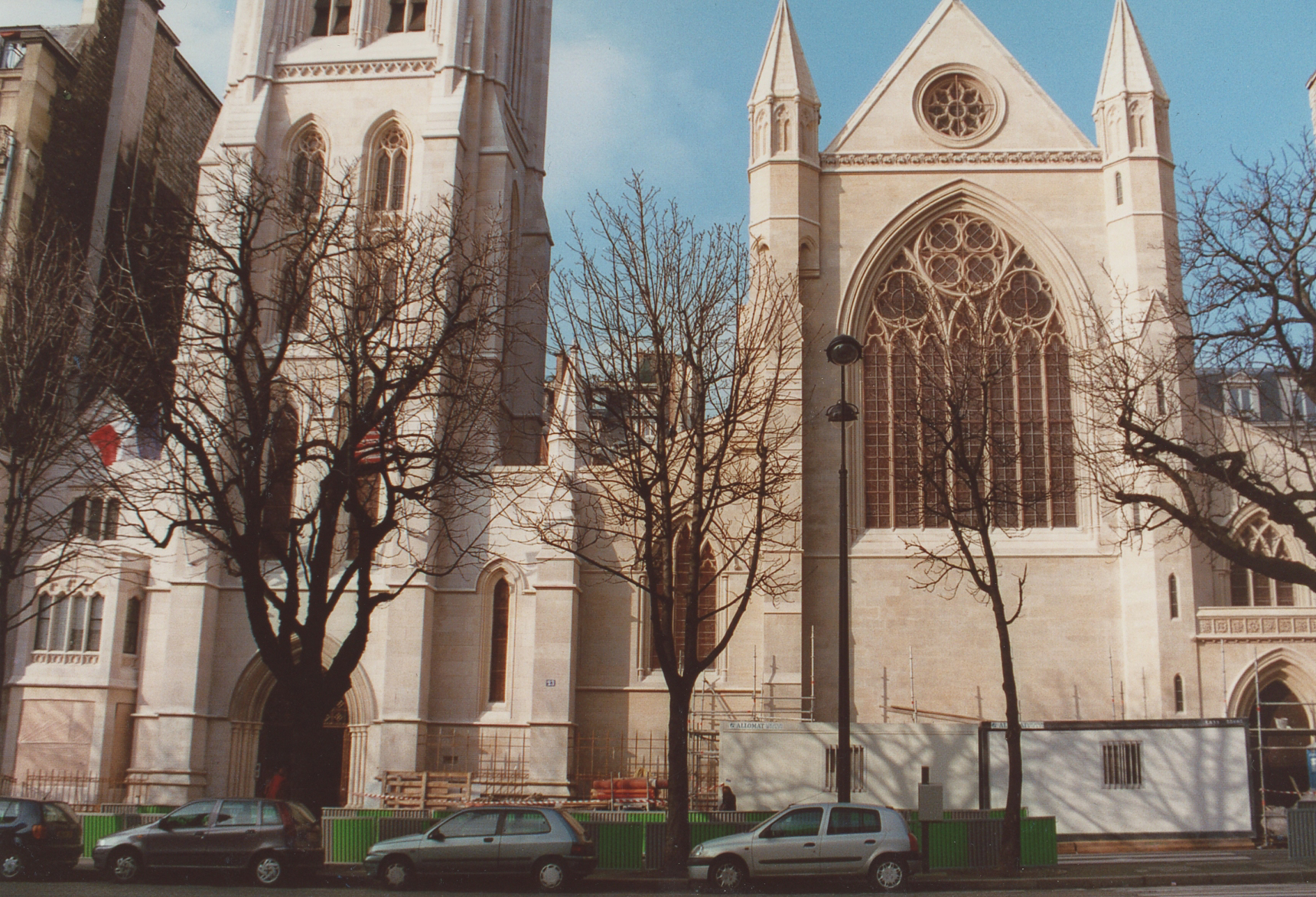
Support the Artist
If you enjoy Ann’s artwork, articles, or anecdotes and would like to support her with a donation, please feel free to do so here.

